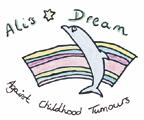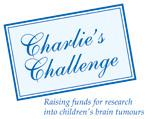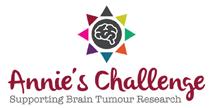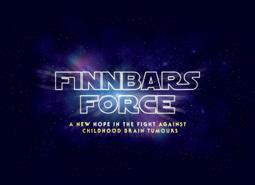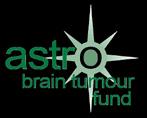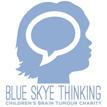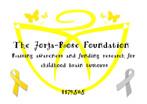


















The launch of our Scottish Brain Tumour Research Centre of Excellence in January was an immensely proud and hopeful moment for our Charity and the entire brain tumour community. Your support is making it possible for us to invest £2.4 million in this, our fifth Centre, in a game-changing partnership with Beatson Cancer Charity, taking us closer to our ambition of funding seven Centres and securing a brighter future for brain tumour patients.
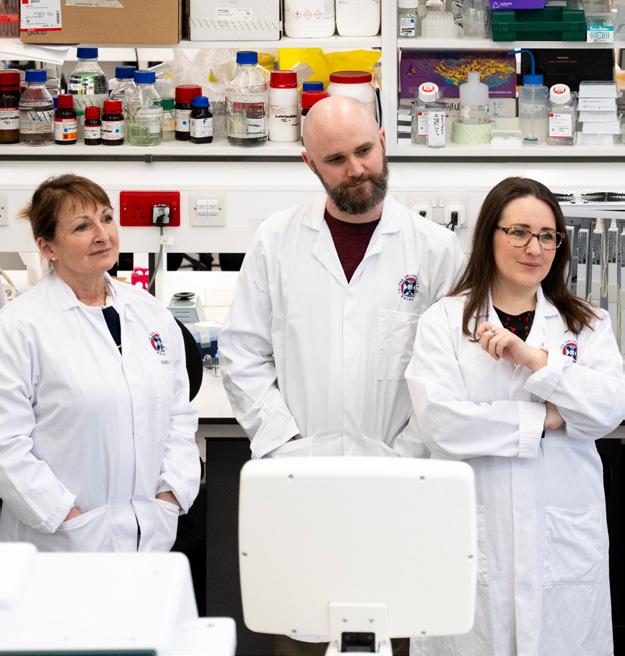
As our 15th anniversary year draws to a close, we pause to reflect on the groundbreaking progress we have made since the Charity began, while looking to the future with our vision to find a cure for all types of brain tumours at the forefront of all we do. During the heart of Brain Tumour Awareness Month, on Thursday 13th March, we will hold a special gala dinner, Closer to a Cure – 15 Years of Impact, to showcase all that we have achieved so far. You can read more on pages 10-11.
Since the last edition of Believe magazine, we are delighted that the NHS has approved a new treatment for childhood brain tumours in both England and Scotland. This represents the first new NHS approved treatment for brain tumours since temozolomide 20 years ago, as detailed on pages 8-9. There are currently more clinical trials taking place in the UK and worldwide than we’ve ever seen and, though we are a long way from curing this disease, there is no doubt that we are making progress and that the work of our Centres of Excellence is at the very forefront.
We now fund 100 researchers across our network of Centres and Funded Initiatives. Inside, you can learn more about the world-class work they are doing, including the breakthrough at our Centre at the University of Plymouth that signals a new approach for meningioma treatment and the UK’s largest multi-disciplinary team focused on new treatment options and clinical trials for glioblastoma patients at our Scottish Centre.
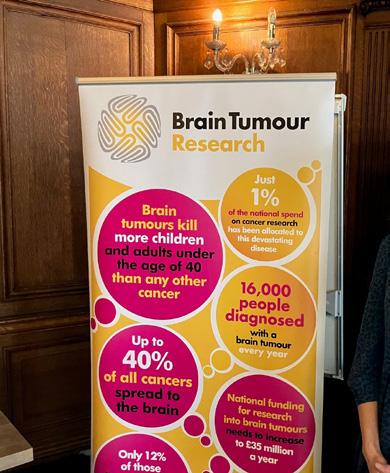
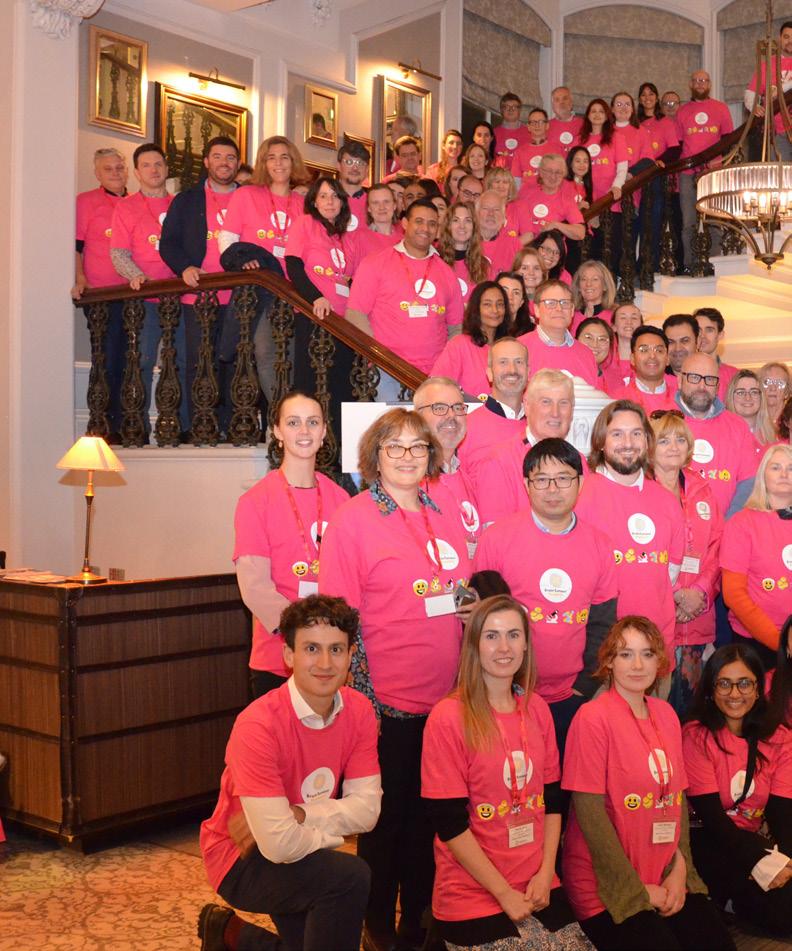
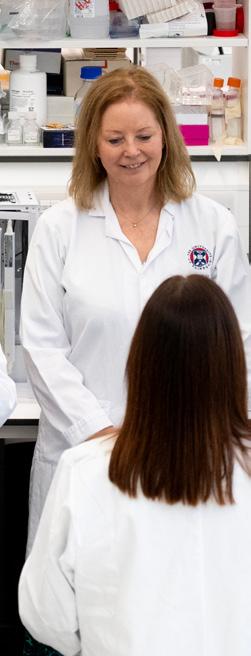
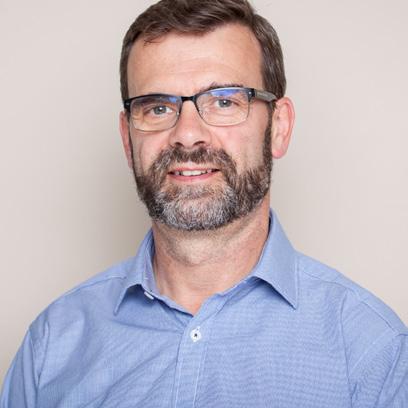
Our Scientific and Medical Advisory Board (SMAB) ensures that we are investing in high-quality research that will be of most benefit to our patients. This year, we extend a warm welcome to Professor Tony Marson, our new Chair of the SMAB, and gratitude to Professor Garth Cruickshank who held the role previously. We are also delighted to have a new Trustee, Mel Jarrett, who will play a key role in the development of the Charity.
Throughout Brain Tumour Awareness Month, we ask you to stand with us in making our voices heard at every level. We have exciting plans, with important research news, new influential high-profile supporters and a host of Government events to rally support in the corridors of power. Thanks to your efforts, landmarks across the UK will be lit up in our signature colours and the month will culminate in Wear A Hat Day on Friday 28th March, when we don our finest headwear to give hope to all those affected by this devastating disease.
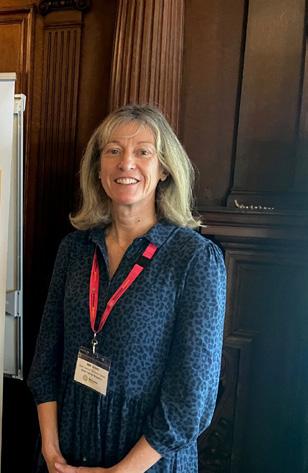
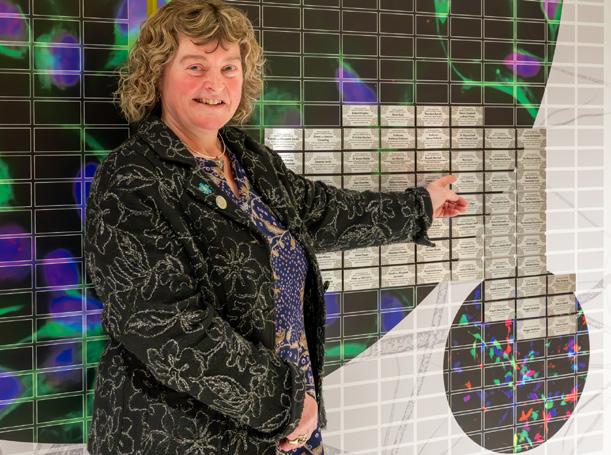

We have made a bold start to the year and we need your help to keep up this momentum. Inside, you’ll read about the many ways in which you can help to fund the work going on at our Centres and strengthen our campaigning efforts. Take your pick from our top 10 fundraising challenges on pages 22-23 or engage your MP as supporter Charlotte Lilley did on pages 26-27.
Choose an exciting challenge to support us this year
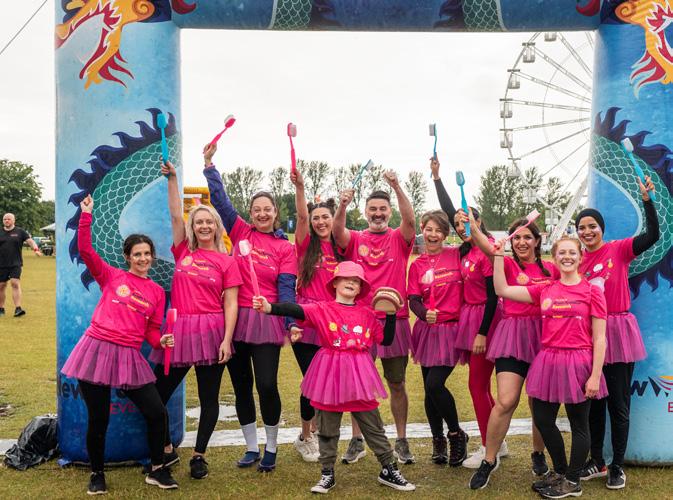
to continue to fund long-term, life-saving research

Jill Rennie was one of many supporters who raised vital funds to help launch our Scottish Centre
As always, I must send heartfelt thanks to each of you for supporting us; for lending us your voices, sharing your stories and donating your time and money so willingly. Your commitment is truly inspiring. Please stay with us to help fund the fight in any way you can.
Together we will find a cure
Dan Knowles CEO
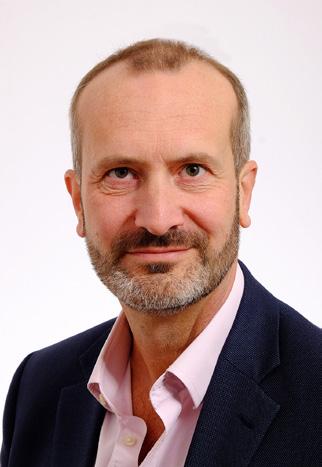
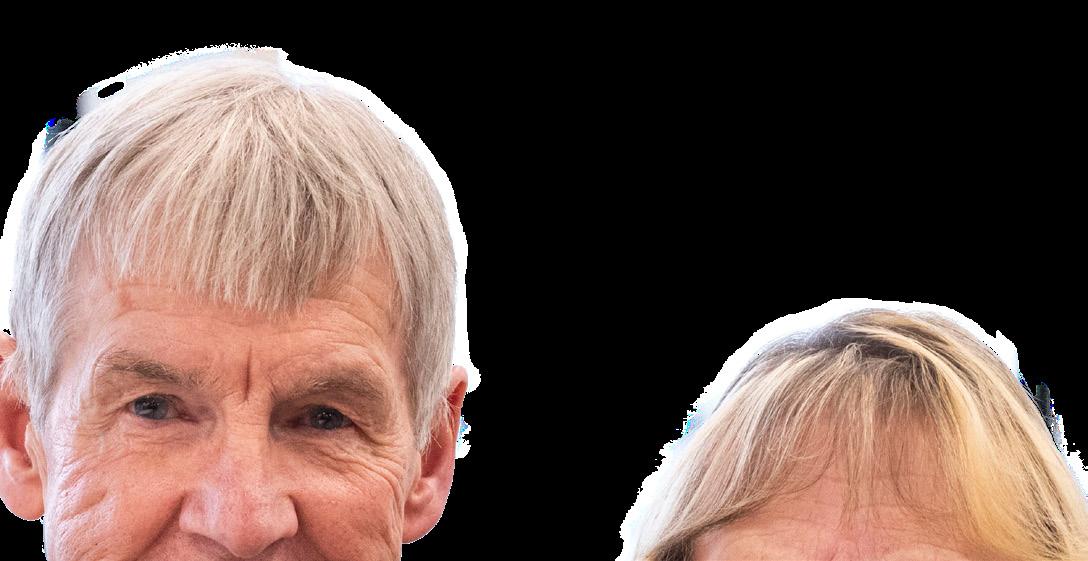

The launch of our new Scottish Brain Tumour Research Centre of Excellence, dedicated to finding better treatments for glioblastoma, heralds renewed hope for the 3,200 people diagnosed with this high-grade, aggressive tumour type in the UK every year.


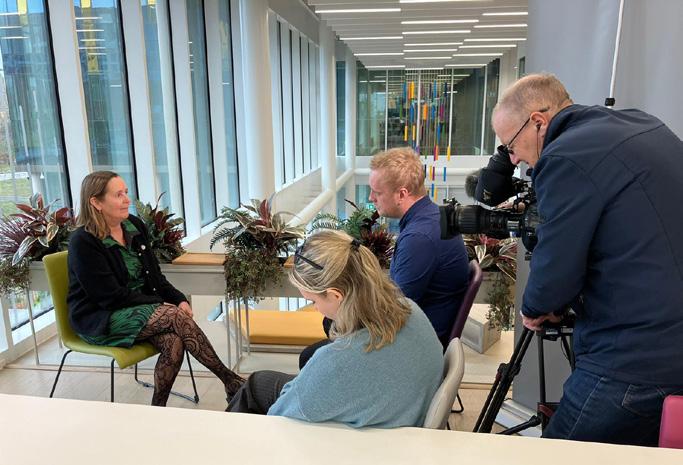
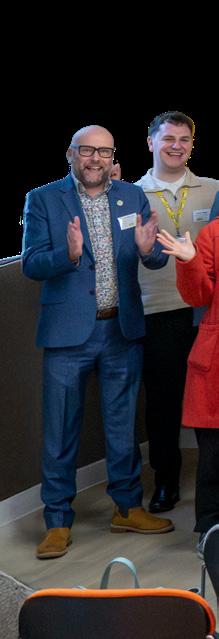

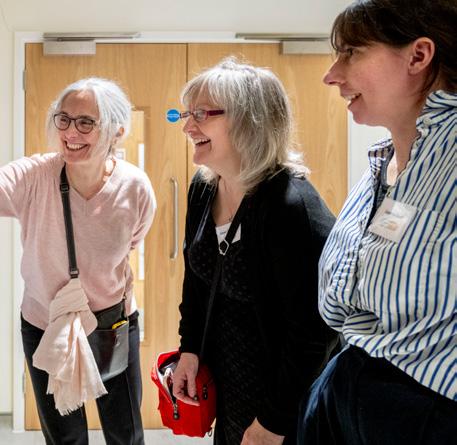
On Tuesday 28th January, brain tumour patients and their families, scientists, charity workers and politicians gathered for the milestone moment in our journey to finding a cure. Among the attendees were Member Charities James Clifford Campling Trust and Shay’s Smiles, as well as supporters Suzanne Davies, who was diagnosed with a glioblastoma in 2014 and given one year to live, and Dawn Kennedy, who lost her son Jay, aged 20, to an astrocytoma and has relentlessly raised money to fund the new Centre.
Jill Rennie, who also helped to fund the new Centre after her husband David died from a glioblastoma, said: “I want to make a difference for other people by turning something terrible into something positive. Having this Centre is great news for those dealing with this horrendous disease. To be at the official opening is so uplifting and it gives me great hope as it feels like we’re making progress in the search for a cure.”
Based at the Universities of Edinburgh and Glasgow, our fifth Research Centre is the result of a unique collaboration with Beatson Cancer Charity, investing £2.4 million of funding over the next five years.
Visitors toured the laboratory, where scientists talked about their work to develop new treatments and undertake the preclinical work required to progress these into clinical trials, to change the story for brain tumour patients in Scotland and beyond.
They also visited the Wall of Hope where Rachel and Don McKie, Claire Cordiner and Rene and David Hogg were among those remembering loved ones they have lost.

Our Patron Theo Burrell, who is undergoing a second round of chemotherapy since regrowth of her glioblastoma, gave a heartfelt talk which moved
the crowded room, followed by friend and fellow patient Glenn Campbell, who is living with an oligodendroglioma and raised more than £200,000 to fund the Centre.
Theo said: “My current situation is scary and I’m daunted by what lies ahead, but this new Centre is giving myself and other people affected by brain tumours some tangible hope.”
Commenting on this proud occasion, CEO Dan Knowles said: “Today is hugely significant for the brain tumour community in Scotland who, thanks to their generous support, have helped make the Scottish Brain Tumour Research Centre of Excellence a reality. I welcome the prospect of more clinical trials being created for patients which will lead to better and kinder treatments and, ultimately, a cure.”
The launch of our Scottish Centre was only made possible through the generosity and unwavering dedication of our supporters. We have raised more than half the funding but we still need your help to raise another £1 million. By making a donation, you will be bringing hope, to all those affected, of a better future.
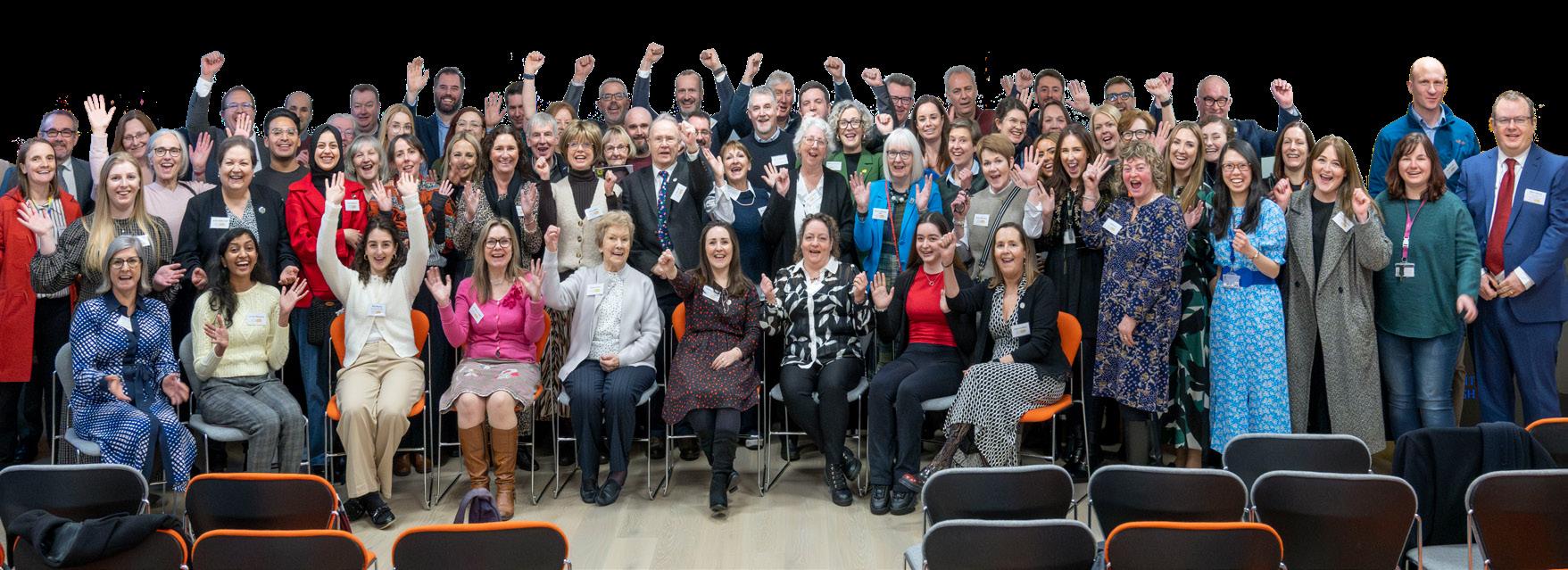
Scientists at our Research Centre of Excellence at the University of Plymouth are paving the way for a new, gentler approach to the treatment of low-grade tumours.
In the last issue of Believe, we reported that the Centre had launched a clinical trial using repurposed anti-retroviral medications, and revealed that drugs developed to fight blood cancer could help improve the efficiency of radiotherapy in treating meningiomas.
And the breakthroughs at Plymouth just keep coming. Now, in a study part-funded by Animal Free Research UK, our team has discovered that targeting a protein called MERTK on the surface of tumour cells could be a new means of treating meningiomas.
The most commonly-diagnosed type of brain tumour in adults, meningiomas are treated with invasive surgery or radiotherapy.
Researchers Dr Foram Dave and Kevin Herrara, led by Dr Sylwia Ammoun, revealed that using a drug to block MERTK stopped meningioma tumour cells dividing and the tumour itself growing. This could prove beneficial in the treatment of schwannoma tumours too.
It is news welcomed by our Ambassador, the Netflix star, writer and producer, Craig Russell, who was diagnosed with a meningioma in 2023: “The surgery to remove my meningioma lasted nearly seven hours,” said Craig. “I had to have my skull rebuilt and I’m still, months later, recovering from surgery. To think that, hopefully in the not-too-distant future, people with low-grade tumours can be treated in this way, means that patients and their families won’t have to go through what we did.”
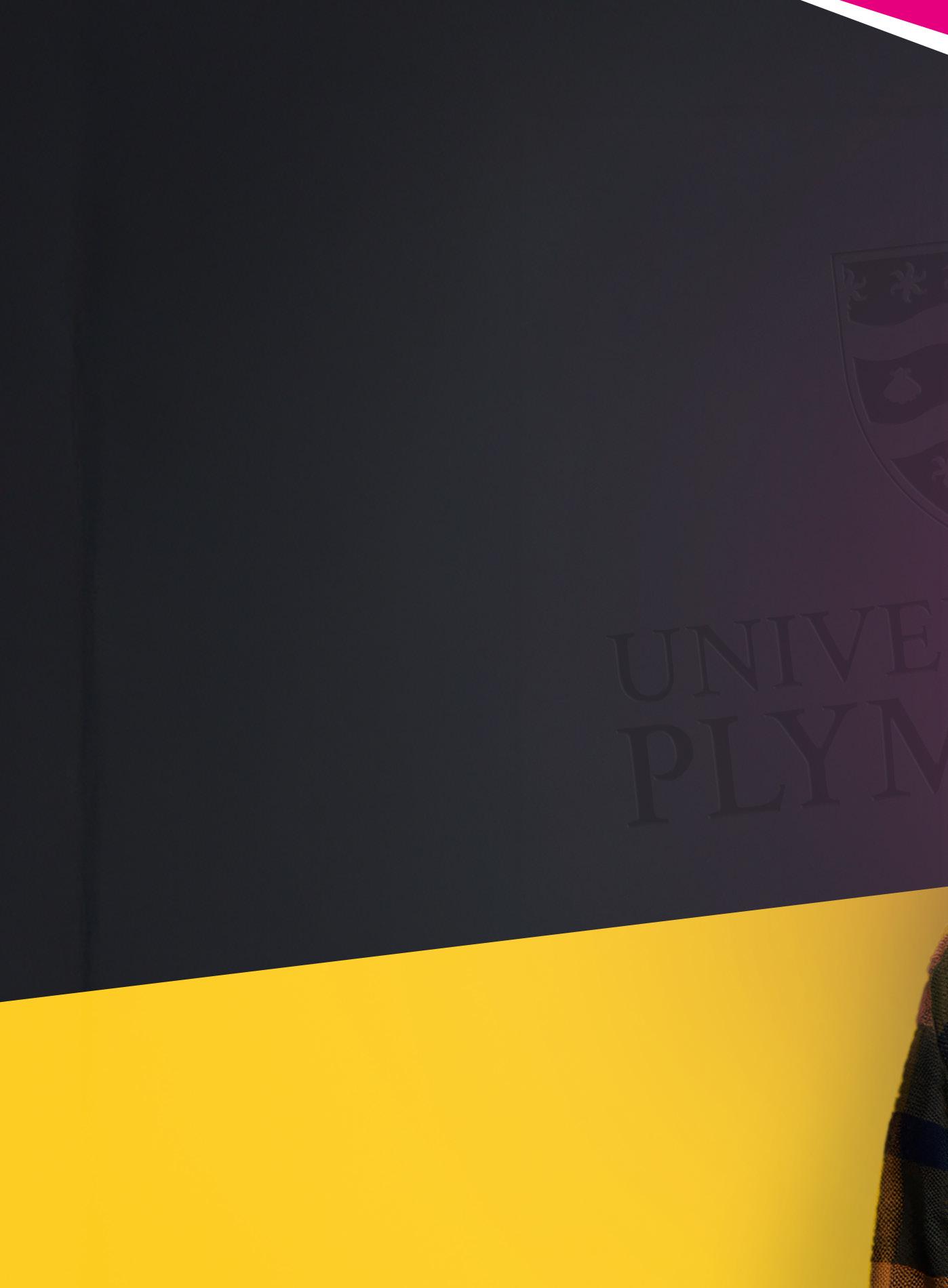
Dr
Karen Noble,
Director of Research, Policy and Innovation

For the first time in 20 years, a new targeted treatment which could transform the lives of children diagnosed with glioma has been approved for use by the NHS in England and Scotland. The combination of dabrafenib and trametinib can now be used for patients aged one and over with either low-grade or high-grade glioma with the genetic mutation BRAF V600E. The two drugs, approved by the National Institute for Health and Care Excellence (NICE), work together by blocking the growth signal coming from the mutant BRAF protein and can slow or even stop the tumour from growing, increasing survival time.
Dr Karen Noble, our Director of Research, Policy and Innovation, said: “This is a significant step forward and great news for our community. The current treatments for paediatric brain tumours can be gruelling and have challenging side effects.
“Dabrafenib and trametinib represent the first approved targeted combination-therapy treatment for paediatric tumours. The treatment is less harsh and can be given at home, meaning it will significantly improve children’s quality of life and give families a much-needed kinder and more effective option.”

To receive all the latest research updates and more straight to your inbox, subscribe to receive our weekly newsletter: www.braintumourresearch.org/ subscribe
Astrocytes
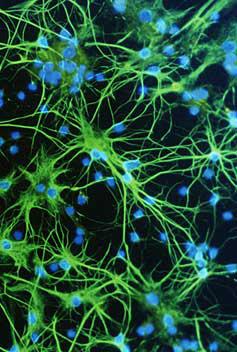
Since our launch in 2009, we have remained committed to finding a cure for all types of brain tumours through sustainable research in our Centres of Excellence. And we’re getting ever closer. Here’s just a small selection of the game-changing breakthroughs your support has helped fund over the past 15 years…
At our Centre at Queen Mary University of London, pioneering research comparing healthy and glioblastoma cells from the same patient could transform treatment by providing personalised treatment options for patients in the future.
Despite radiotherapy and chemotherapy treatment pathways, the prognosis for glioblastoma patients remains poor. But at our Centre at Imperial College London, researchers have spearheaded the use of arginine deprivation – an amino acid essential for cancer cell survival – in combination with standard of care treatments to improve their effectiveness, opening up new avenues for therapy.
Enhancing surgical
The majority of glioma tumours have no clear boundary, but by recording how the surgical area absorbs and reflects light, our research team at Imperial College have proved that multispectral imaging could be used to help neurosurgeons distinguish between tumour and healthy tissue.

Brain tumours kill more children and adults under the age of 40 than any other cancer
Creating a network of seven sustainable Centres of Excellence across the UK to find a cure
Your support will allow us to continue to make these breakthroughs. Visit our website to set up a regular donation or give a one-off amount: www.braintumourresearch.org/donate
Repurposing HIV medication to treat schwannoma and meningioma tumours
Our Centre of Excellence at the University of Plymouth trail-blazed the testing of HIV anti-retroviral medications as a non-invasive, systemic treatment for patients with inherited NF2 or NF2-related tumours, leading to the launch of an early phase clinical trial.
the launch of clinical trials for children with high-grade gliomas
Through the launch of our first Centre focused solely on paediatric brain tumours at the Institute of Cancer Research (ICR), we are now connected with a worldwide network of experts focused on setting up and running clinical trials for children with brain tumours.
In breakthrough research at Queen Mary’s, our scientists demonstrated that the deregulation of proteins known as BMI1 and CHD7 plays a crucial role in the growth of a subgroup of
medulloblastoma tumours known as group 4. Their research suggested that by targeting these proteins, they could slow down or even halt the progression of a proportion of these tumours.
In a game-changing clinical trial, researchers at Imperial demonstrated that high-grade brain tumours could be accurately detected by a blood test. This could mean that many people with symptoms of a brain tumour and evidence of a mass in the brain may not need surgery to determine tumour type, reducing their risk of complications, saving resources and avoiding delays in diagnosis and treatment.
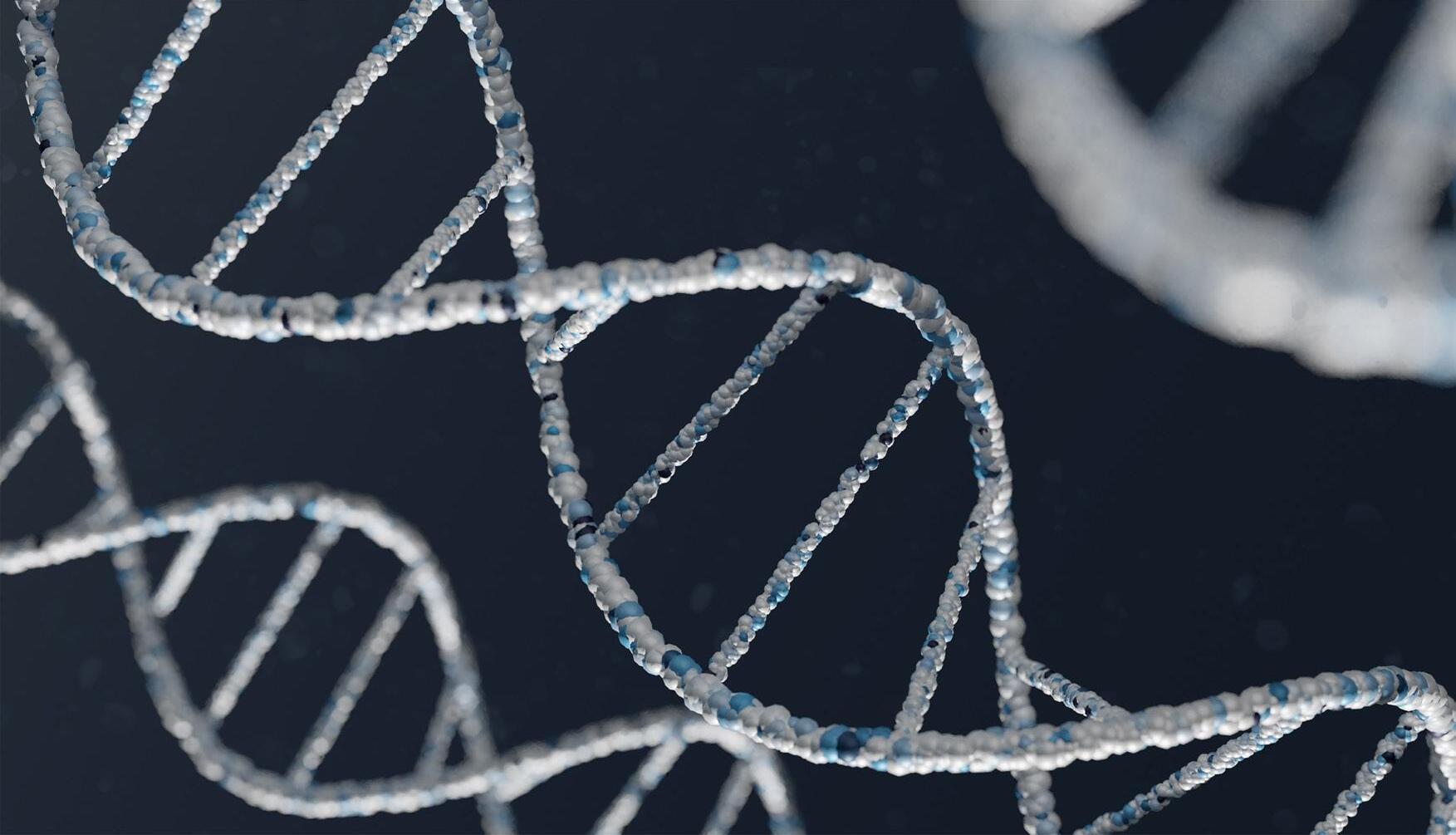

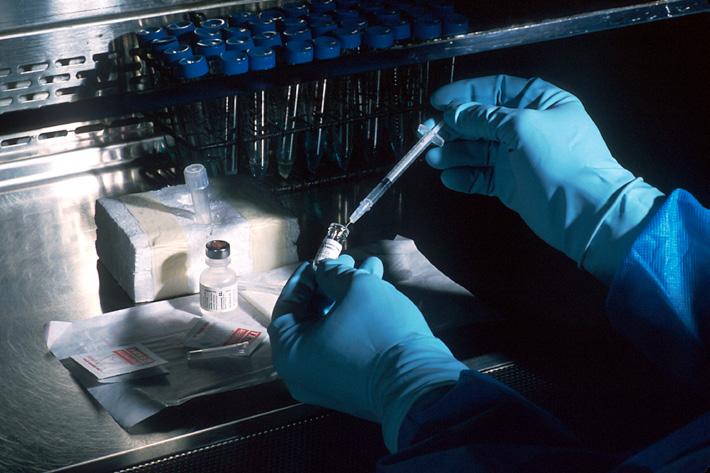

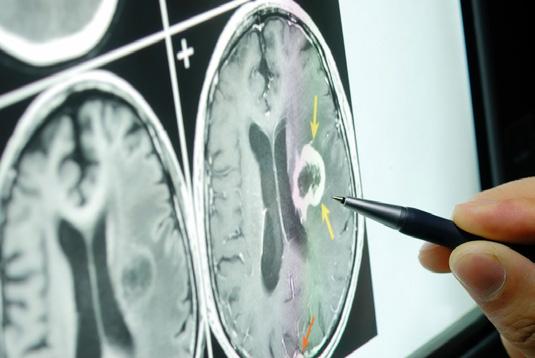
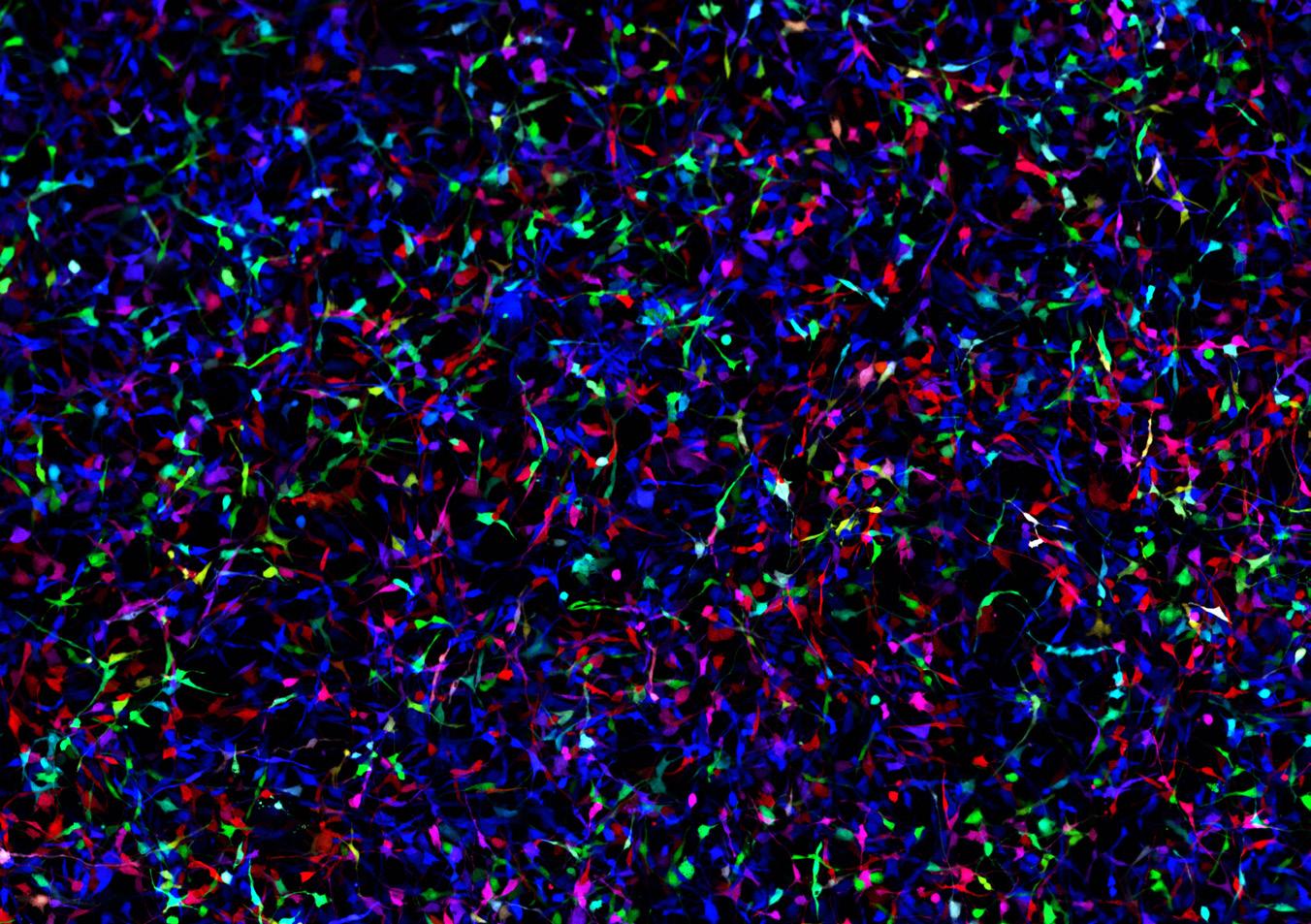
FRIDAY 28TH MARCH 2025
Put your hat on for hope and join us on Friday 28th March for our annual fundraiser. Wear A Hat Day is back and with your help we can make it bigger and better than ever before.
March marks Brain Tumour Awareness Month and as it draws to a close, we’re inviting everyone to pull on their favourite headgear and make a donation, or to attend or host a hat-themed fundraising event.
Since its launch in 2010, Wear A Hat Day has raised more than £2.2 million to help raise awareness for Brain Tumour Research so that we can keep campaigning for the Government to invest more in research and sustainably fund scientific breakthroughs in our Centres of Excellence.
This year, we’re asking you to join forces with family, friends, colleagues and neighbours. It’s so simple to get involved and the opportunities to raise money and inspire hope are endless.
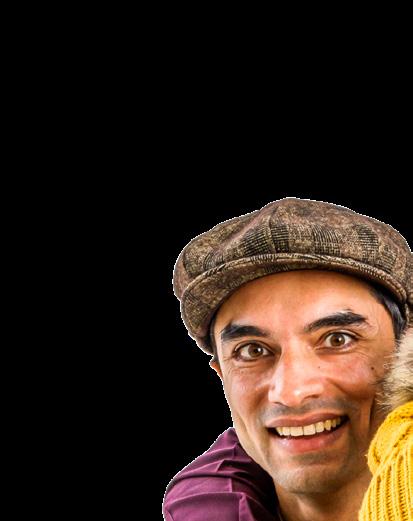
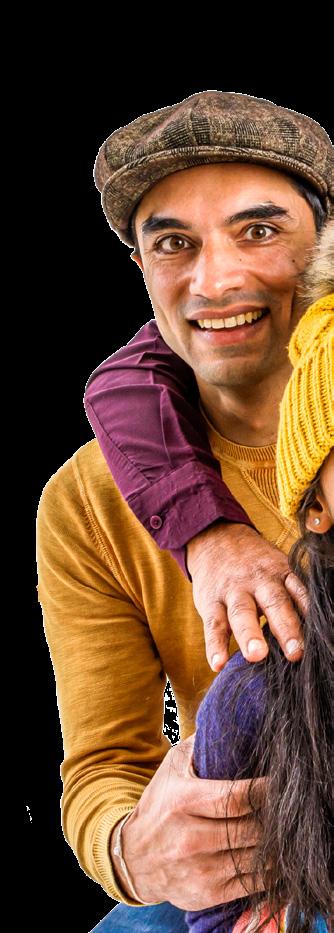
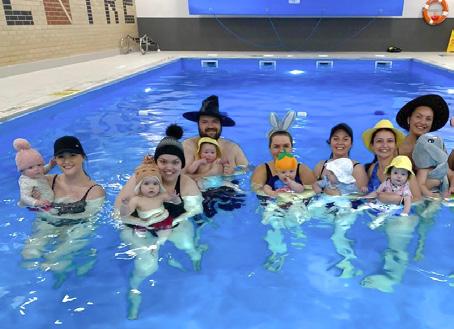
Why not cycle in a Stetson during your next spin class and ask for sponsorship – or get the whole group to wear a hat for hope? Host a race night at your local village hall and dress to impress in top hats and fabulous fascinators. Put on a competition for the most outrageous woolly hat during your next wild swimming session. Or encourage your knitting club to yarnbomb hats for local letterboxes, leaving details for people to donate.
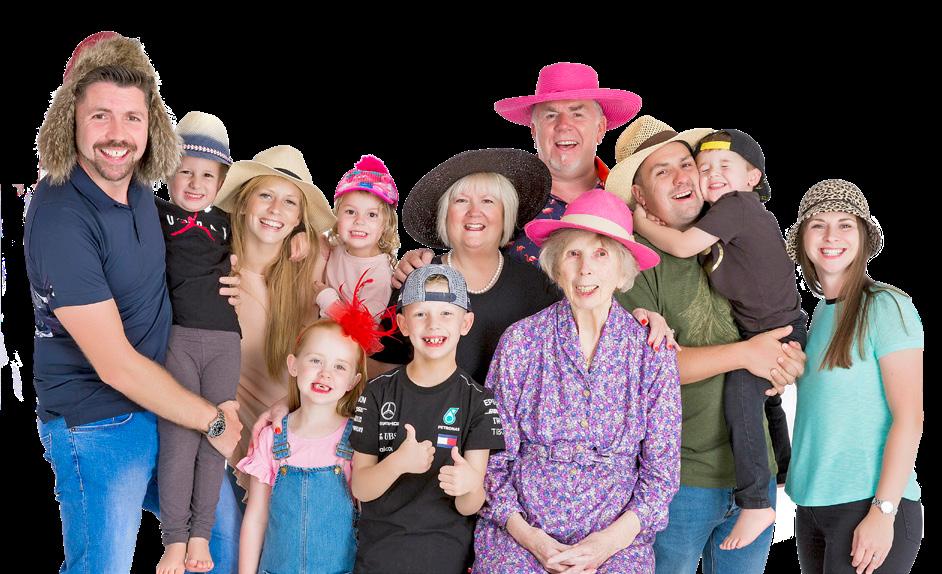
Stuart
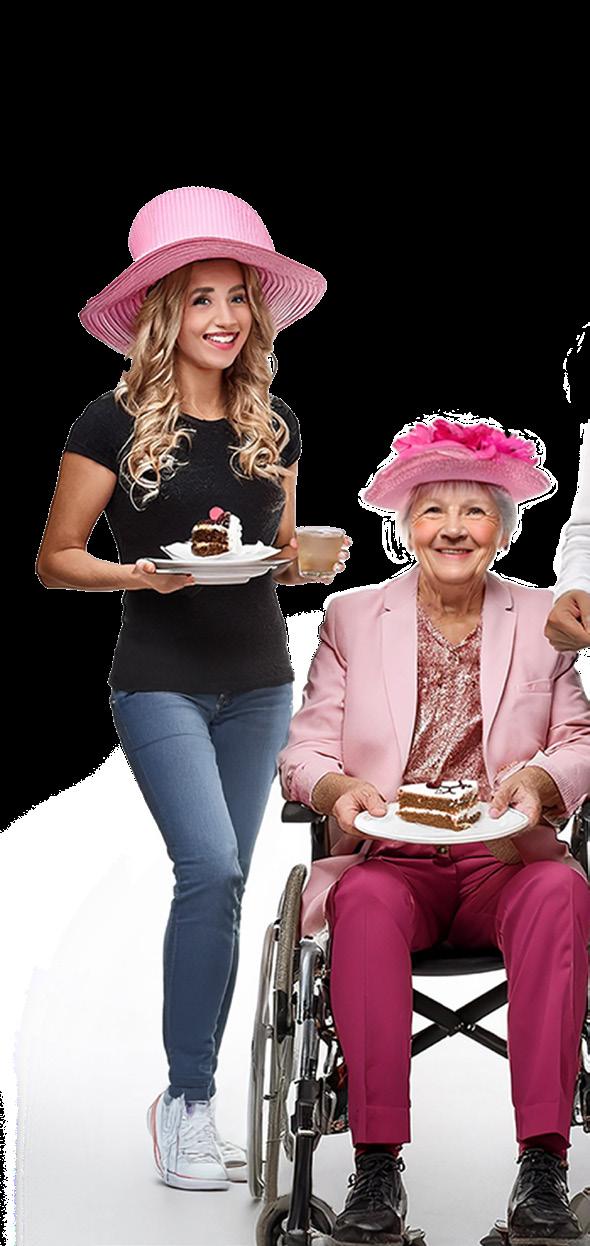

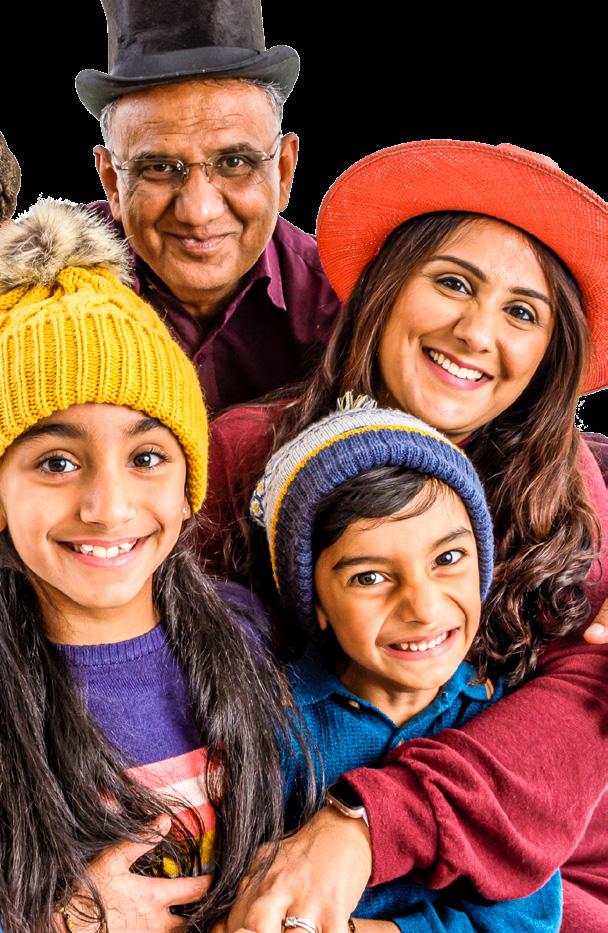
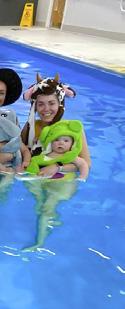
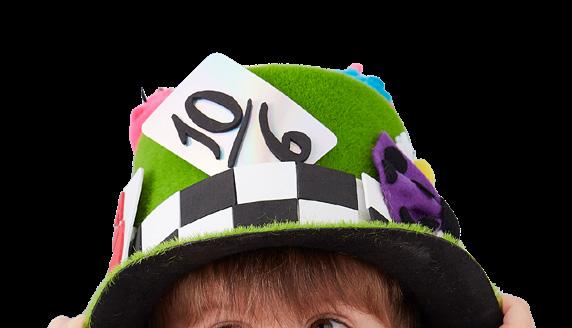
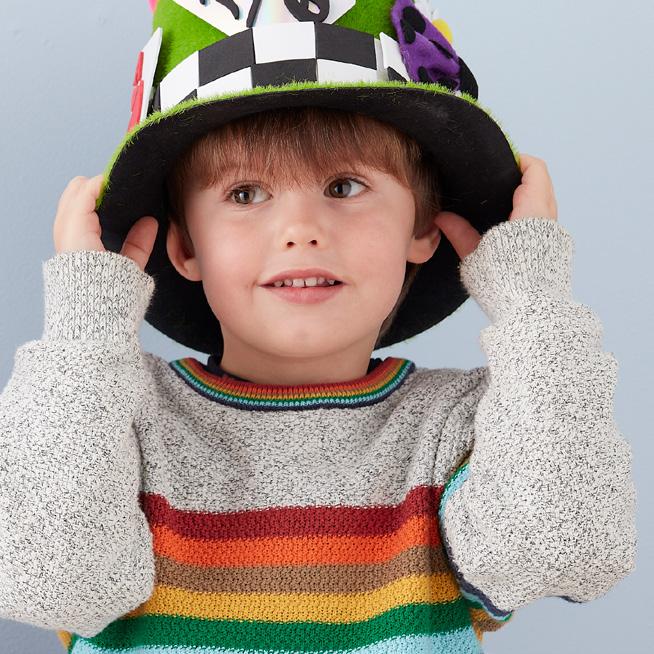
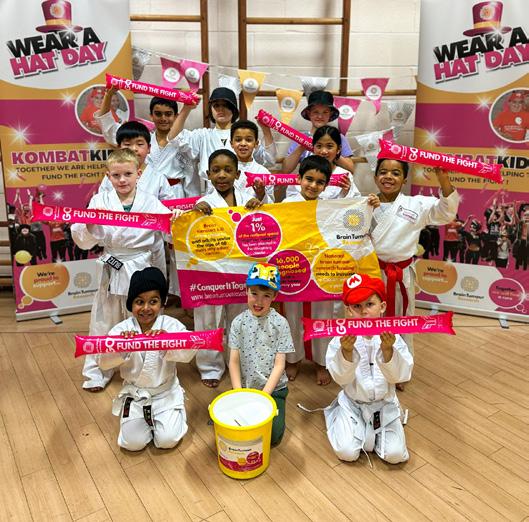
Ask your colleagues to wear a hat to work and put a pound in the pot, or contribute to a cake sale and fundraise for our cause. You could host a hat-themed quiz and ask participants to pay to take part. Or invite people to donate a hat and then auction them off – hats off to the highest bidder! Or simply have a little fun around the water cooler with a box of novelty hats for people to wear and share snaps on social

If you’re part of an educational setting, you could host a musical fundraiser with your college choir and sing your hearts out while wearing hats. Or put on a fundraising movie night in the school hall with popcorn and pyjamas: from Wonka to Paddington, Harry Potter to The Cat in the Hat, there’s plenty of hat inspiration on the big screen. At the school gates, encourage parents to wear a hat for pick-up – then shake that charity bucket! Or simply switch up your regular non-uniform day and raise money by asking students to pay a pound to wear a hat for hope, instead.
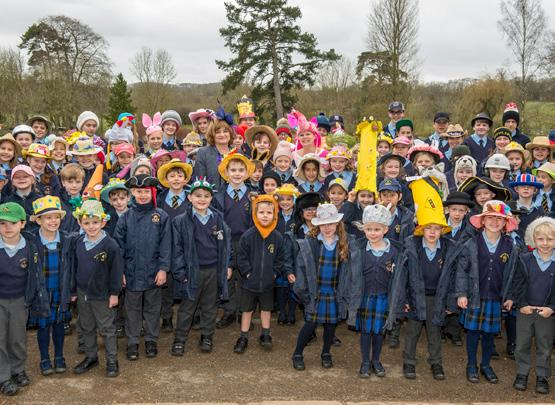
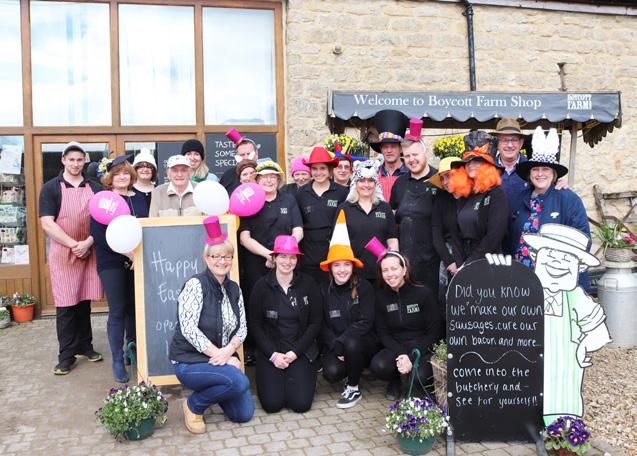
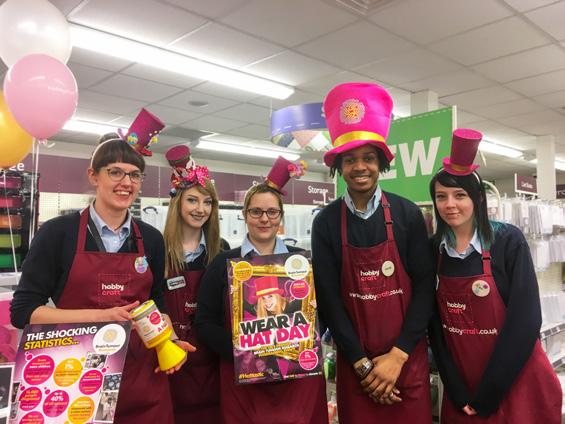
When you register to take part, you’ll find even more ideas and inspiration in your downloadable fundraising pack, and your Community Fundraiser will be in touch to offer their support, too.
MusicmogulPete
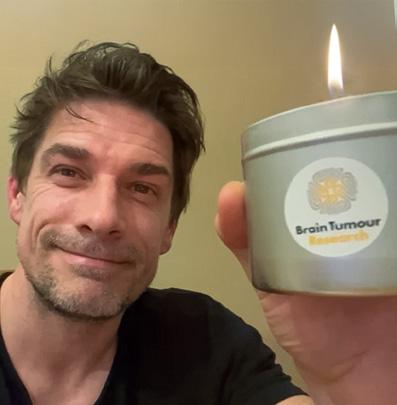
Three new high-profile supporters, who have all been deeply affected by this disease, recently joined our ever-growing family of Patrons, Ambassadors and Celebrity Supporters. Together, they are wielding their influence to make our cause known to more people than ever before.

In September, we welcomed TV and film actor Craig Russell as Ambassador, following his diagnosis and treatment for a meningioma. The father of two young sons, Craig, 47, began working with us a year after undergoing surgery to remove a low-grade, lime-sized tumour and having part of his skull replaced.
Having supported our petition, which was signed by 81,000 supporters and called on the Government for increased funding into research, the writer and producer helped to launch our 2024 Manifesto at Westminster where he spoke directly to MPs about the urgent need for change. He said: “I’m one of the lucky ones and, hopefully, with your help, there will be more lucky ones.
“Before being told I had a brain tumour, I didn’t know how little funding research for this disease receives. It’s opened up conversations with friends and family who have commented on how much more they are noticing brain tumour stories in their everyday lives.”
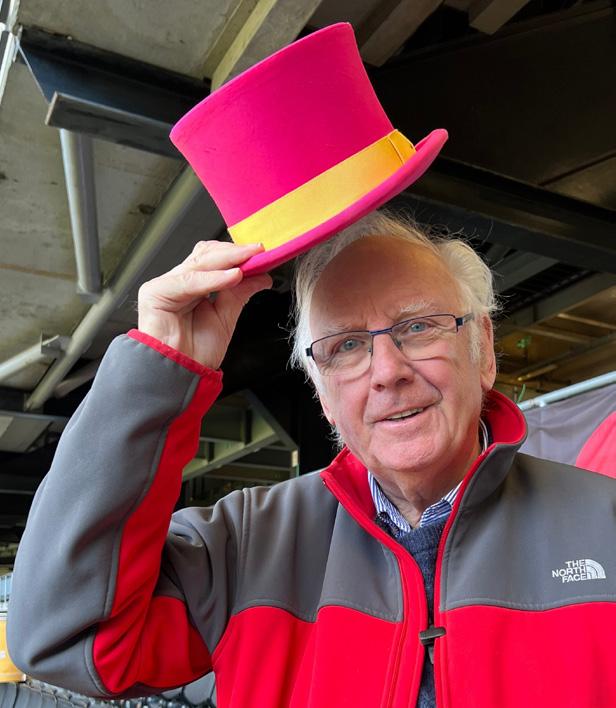
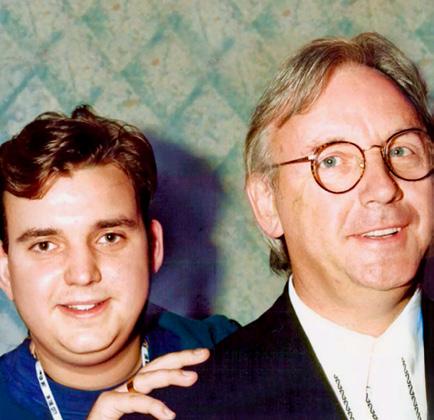
Pop music powerhouse Pete Waterman OBE was announced as our newest Patron in November and to mark this special moment, the father-of-two was interviewed on BBC Radio 5 Live, sharing the heartbreak of losing his eldest son, Paul, to a brain tumour in 2005, aged 33.
Previously, Pete, who has sold more than 500 million records worldwide, campaigned with us to increase the national investment, stood with us in solidarity by lighting a candle for our #ShineALight campaign and took part in Wear A Hat Day.
He said: “I have taken on this role as Patron of Brain Tumour Research because nobody should have to go through this. We have seen massive moves forward in medicine and in cancer care, we have modern technology, and somehow we can spend a fortune on bombing each other, yet we can’t spend as much as we need to on making the advances we so desperately need in this area. That’s just lunacy.”
Influencer Abi Feltham has also joined our ranks as Ambassador and with her trademark wit, honesty and humour, she has been sharing her experience of living with an oligodendroglioma.
Diagnosed last May and given a prognosis of 15 years, 37-year-old Abi is no stranger to life’s struggles, having previously overcome addiction and mental health issues. In documenting her journey to sobriety and self-acceptance on social media, Abi has built an army of fans and is now spreading her message of hope and optimism throughout the brain tumour community.
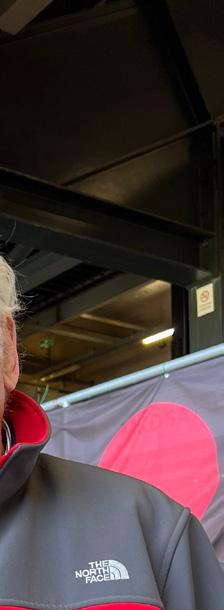
“I want to share my story because cancer is terrifying. If I can provide a bit of hope for someone in this position, that’s really important to me,” said Abi, who has undergone two brain surgeries and two rounds of chemotherapy.
“As an Ambassador, I want to help fight for change. I know first-hand how tremendously horrible brain cancer is and the effects it can have on families.”
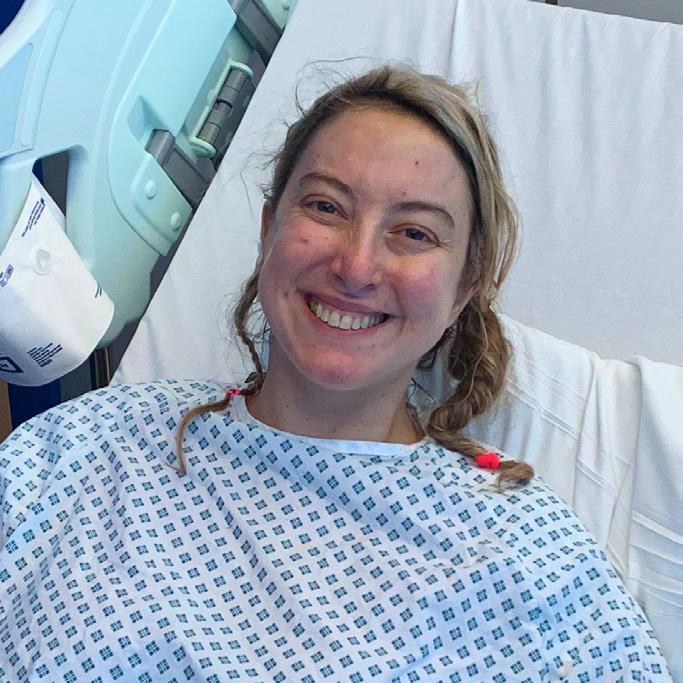
Main image: Influencer Abi is dedicated to bringing hope since her diagnosis
Inset: Abi has undergone surgery and chemotherapy
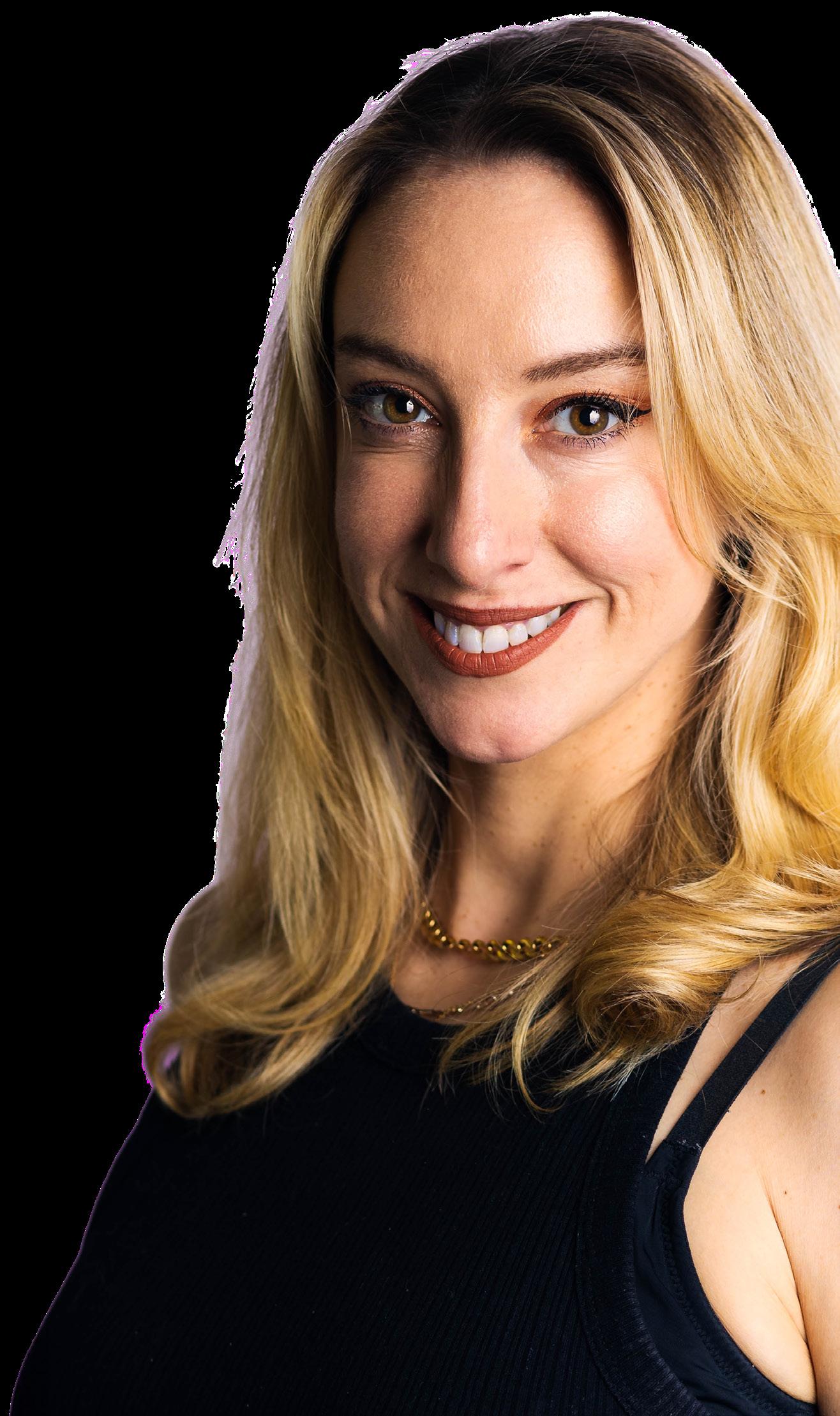
Find out more about our incredible Patrons and Celebrity Supporters and the invaluable work they do: www.braintumourresearch.org/patrons
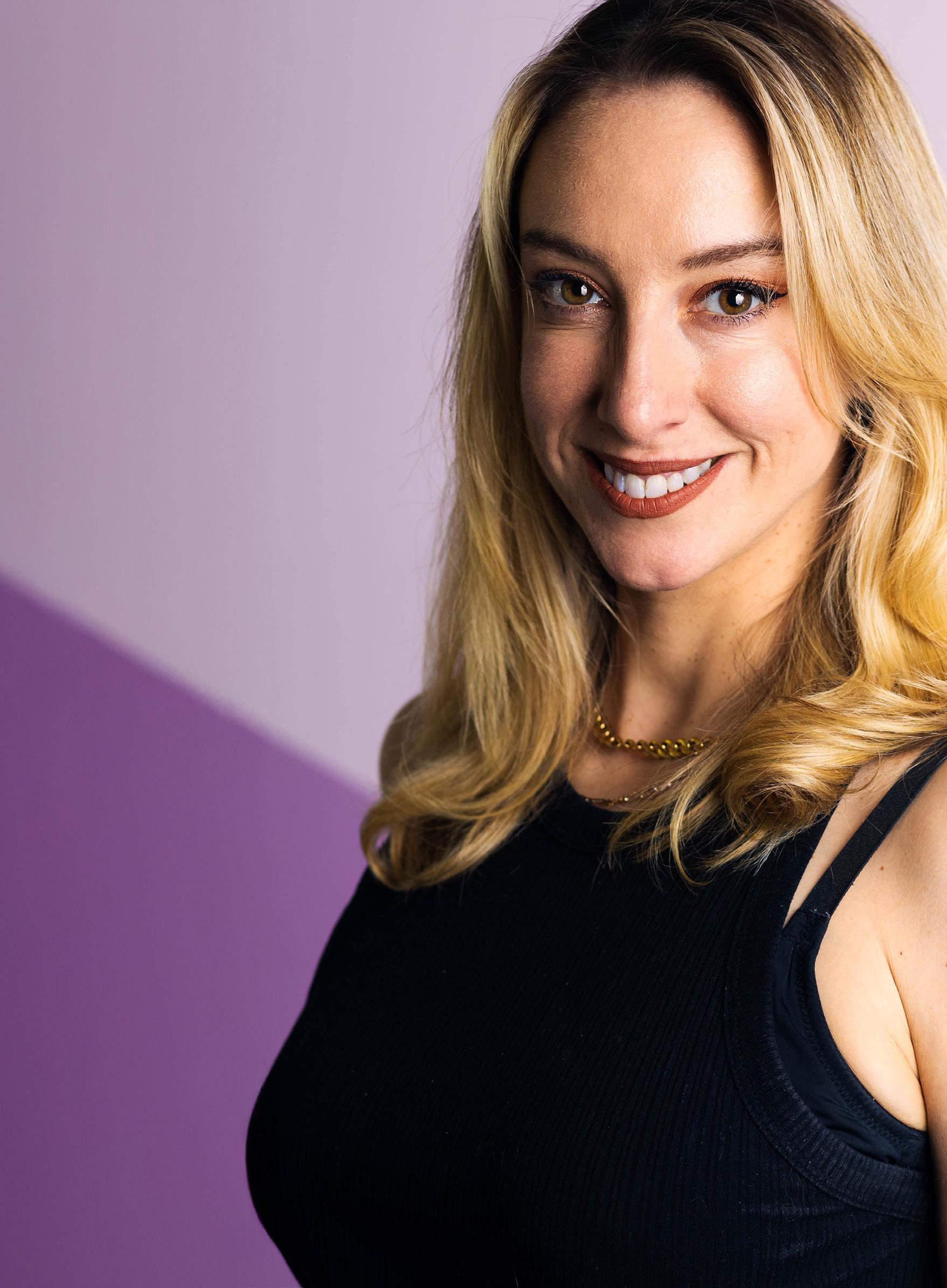
Leaving a gift in your will is an incredible way to make a difference for families affected by a brain tumour diagnosis. Your kindness will help ensure the sustainability of our future research programmes, necessary to make the scientific breakthroughs to bring about a cure for all types of brain tumours, while funding vital campaigning for greater investment from UK governments and larger charities.
And with charitable legacies being exempt from tax, your money can make even more of an impact!
Dominique Nicholson and her husband David have chosen to leave a joint gift in their wills after Dominique was diagnosed with a meningioma in 2019, following the birth of their second daughter.
Dominique said: “I’m one of the lucky ones and, five years on from surgery with no regrowth, I feel incredibly grateful. I take on at least one charitable event to raise money for Brain Tumour Research each year and by leaving a legacy in my will I know I can continue my support.”

Have your will written or updated for FREE

David and Dominique are leaving a legacy

For every £1 you give, our Centres can generate £3 more, meaning your legacy could be worth four times as much as you leave us.
You can have a simple will written or updated for free through our partner Octopus Legacy. There is no obligation to leave a gift to the Charity when using this service. Together we will find a cure
Find out how you can create a legacy that could make a real difference. Visit www.braintumourresearch.org/legacy or email legacy@braintumourresearch.org


In David’s name

A beloved husband and dad is the inspiration for his wife Clare and adult children Paige, Mary and Guy signing up to run the TCS London Marathon in April 2025. Already they have raised an impressive total of more than £26,500 in his memory.
David Bicker-Caarten passed away in October 2023, aged 58, just weeks after being diagnosed with a glioblastoma.
Clare said: “My darling husband was clever, kind, positive and loved life in every way. He was first and foremost a family man and loved nothing better than spending time with us all.
“The shock and grief we have felt has left us broken. His dying has left an unbelievable hole.”
David was a highly respected headmaster at Lucton School in Herefordshire, where he focused on
ensuring excellence through passionate teachers and children who wanted to learn. Shocked at the speed with which David was taken, staff, parents and children have all rallied to help with the fundraising, including holding an auction that raised more than £15,000
Clare added: “Losing David so suddenly thrust me and the children into a world we previously knew nothing about. It was a shocking way to learn how devastating this disease is, with only 1% of the national cancer spend allocated to it.
“I’m definitely not a runner and have literally had to start with the Couch to 5K app, but running the London Marathon is giving the four of us a focus to do something positive as a lasting legacy for David.”
You can help bring forward the day a cure is found by making a donation, however big or small: www.braintumourresearch.org/donate
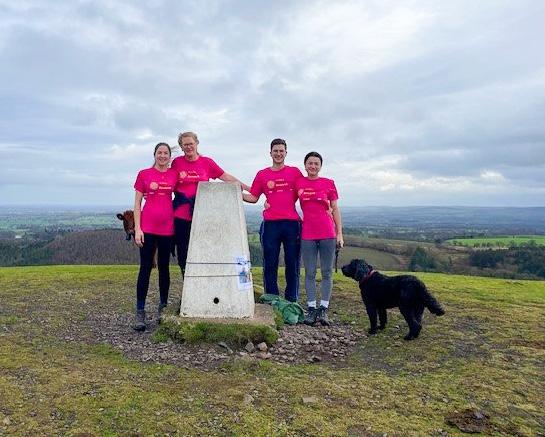
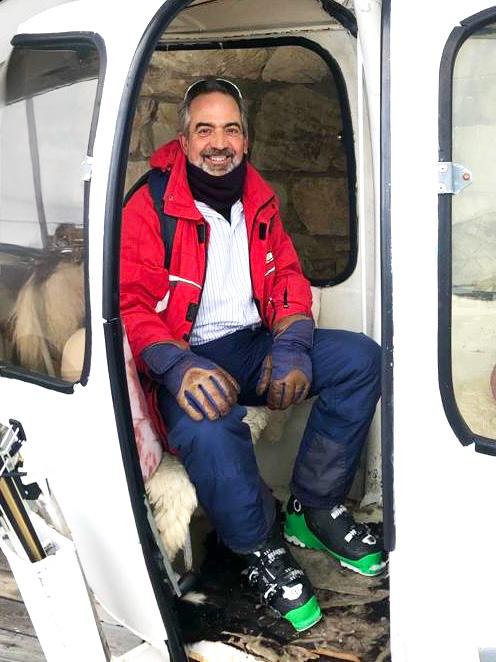

We are constantly blown away by our supporters who are prepared to put their bravery to the test to maximise the funds and awareness they raise for Brain Tumour Research. From marathons to mountains and so much more, your challenges, inspired by those you love, never cease to amaze us.
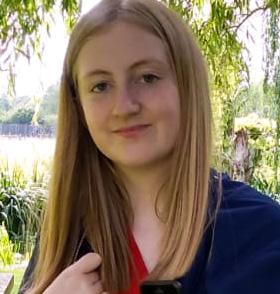

Eleica’s 350-mile trek ends under the Eiffel Tower
Taking on an extraordinary 350-mile hike from her hometown of Nottingham to Paris was Eleica Hines, 20, who had surgery to remove a brain tumour aged four. She dedicated her 19 days of walking, which raised close to £5,500, to her friend Erin Kiggins, lost suddenly to an undiagnosed brain tumour in 2021.
Eleica said: “The journey from Nottingham to Paris was painful, but nowhere near as painful as it is for those living with a brain tumour or for the family and friends who have lost loved ones to the disease.”
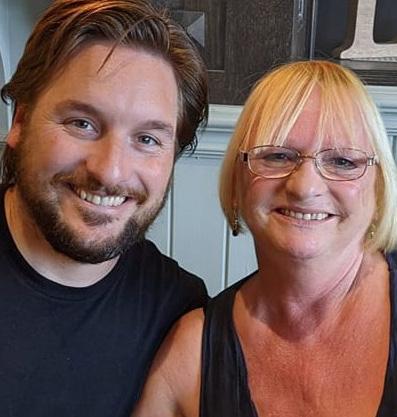
Jack, who, came second in his final marathon and achieved a personal best, said: “Mum was a runner and I grew up watching her do half marathons, so this was a fitting tribute. I hope that I’ve helped to raise the profile of brain tumours and got more people speaking about the investment that’s needed to research kinder treatments and work towards finding a cure for the disease.”
To join our #FightingForce and fundraise in any way that suits you, go to: www.braintumourresearch.org/ blogs/fundraise/get-fundraising

Remembering mum Debbie, who died from a glioblastoma, aged 61, in February 2023, our indomitable Trustee Jack Goodwin completed a ‘megathon’ challenge of 15 marathons in a year, achieving his target of raising £2,740 –enough to sponsor a day of research.


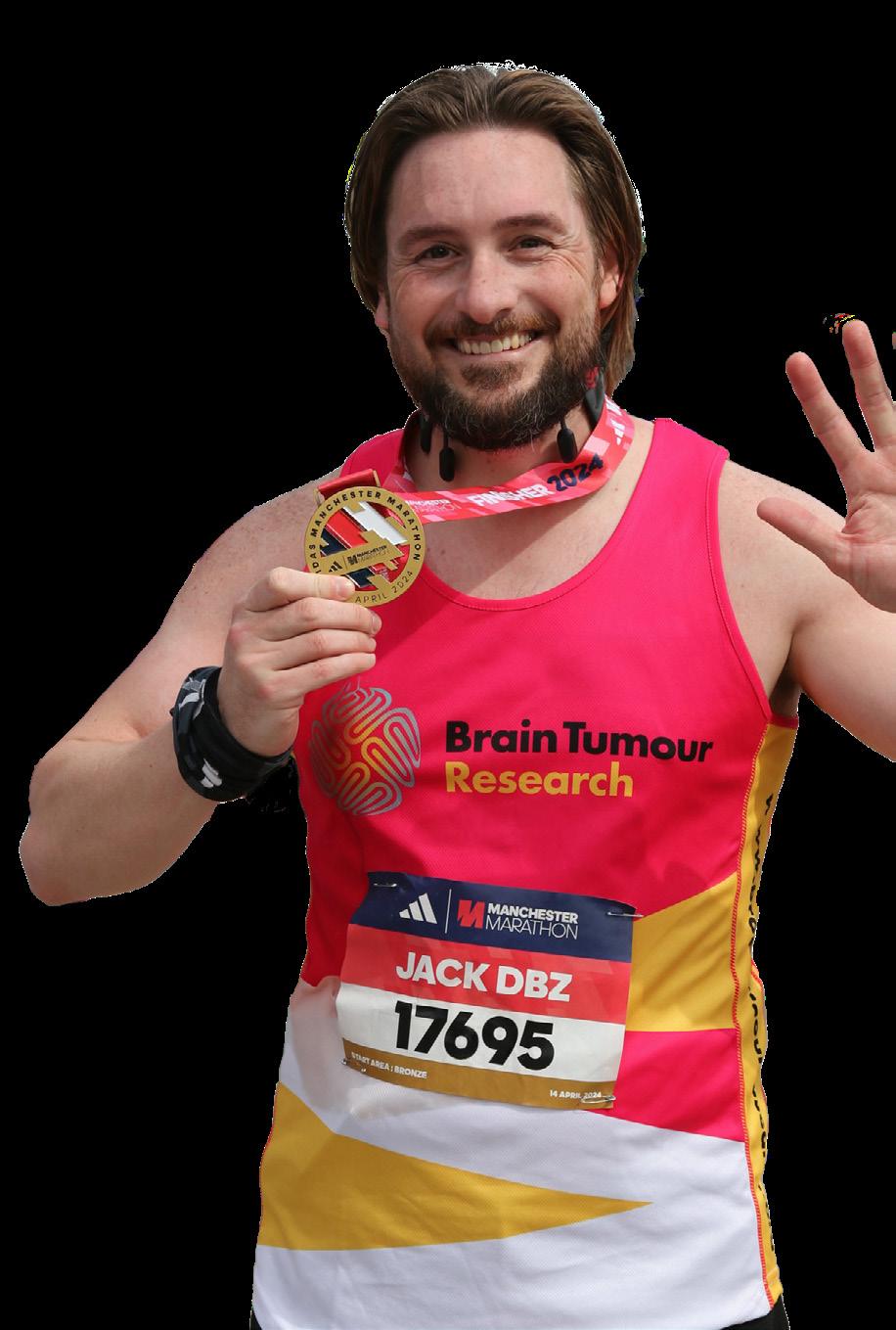


Determined Anna Hardwick battled blizzards and altitude-induced blindness to reach the summit of Mount Kilimanjaro to honour her mum Theresa, diagnosed with a meningioma in 2019. The 25 year old struggled through 60mph winds and temperatures as low as -14C on her way to conquering the 6,000m Tanzanian mountain.


Raising more than , Anna said: “The way my mother has dealt with her diagnosis and continued to be the most incredible person was my inspiration.”
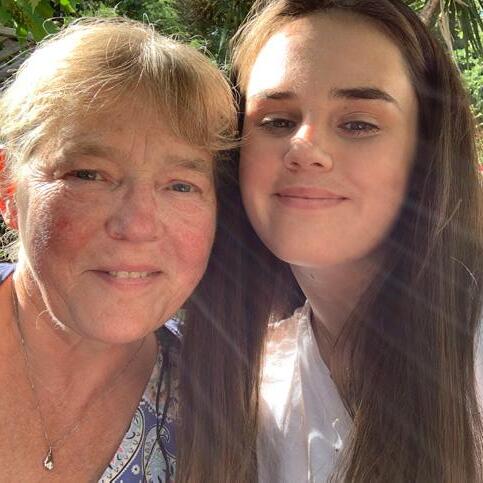

Motivated by her husband and childhood sweetheart Chris Blakemore, who died in 2018 from a glioblastoma, aged 64, Jill took part in our 2024 Jump for Hope challenge. Her plucky skydive at the age of 68 raised more than £2,000 to help find a cure.
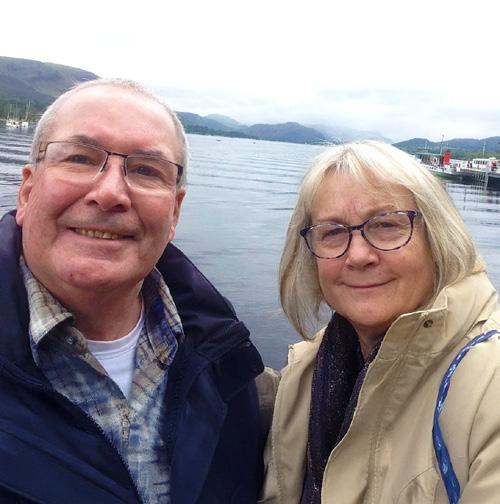
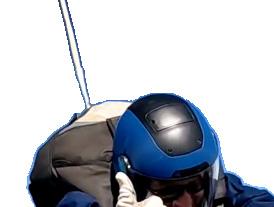
Jill said: “Chris was a very loving and devoted husband, father, grandfather and brother. He underwent surgery, followed by radiotherapy and chemotherapy, but despite also taking part in a trial using repurposed drugs, he was taken away from us far too early because of this cruel disease.”
For a thrill-seeking challenge, join one of our Jump for Hope skydives on May 2025 at locations across the UK. Visit our website to secure your spot: www.braintumourresearch.org/ products/jump-for-hope-2025


If the date or location of our Jump for Hope skydives aren’t convenient for you, don’t worry!
You can book your own jump at a time and place that suits you: www.braintumourresearch.org/products/skydive
Our fabulous fundraisers never fail to inspire with their commitment and creativity – the endlessly inventive ways they find to help raise awareness and boost funds means that we can continue to carry out our important work campaigning for, and funding, vital research.
In September, Head Teacher Sam Sims and Teaching Assistant Adriana Houchell, from Meadows Montessori School in Suffolk, braved the shave in front of an audience of 30 school children. The pair collectively sheared off 26 inches of hair in memory of friend and colleague Ruth Brailsford from Ipswich, who died of a brain tumour, raising more than £3,000 on our behalf.
Despite having to give up his career in the armed forces after being diagnosed with a glioblastoma, Lance Corporal Rian Ilett, from Portsmouth, successfully completed the Royal Marines Endurance Commando Test, 18 years after first smashing it as a new recruit. One of the world’s toughest commando courses, Rian’s fearless mission raised more than £5,700 for Brain Tumour Research.
Meanwhile, 13 scientists from our Centre of Excellence at Queen Mary University London, stepped up their life-changing endeavours in the laboratory to host a Walk of Hope in Victoria Park. Organised by Dr Sara Badodi, Junior Group Leader, and joined by family and friends, the team raised more than £1,500, taking us one step closer to a cure.
Honouring what would have been the 16th birthday of their son, George, who died of brain cancer aged 13, Louise and Matt Fox hosted a charity ball in Bedfordshire. More than 250 attended the gala event, now in its third year, which included a silent auction, prize raffle and a game of heads and tails, together raising more than £10,800 on the night.
Uniting in memory of wife and mother Lesley McFarlane, who died from a brain tumour 10 years ago, daughters Mirren and Caitlin, and husband Kevin, cycled 45 miles from their home in Cumbernauld to Kirkcaldy, Fife, Lesley’s hometown. With each mile representing a year of Lesley’s life, the epic adventure raised more than £7,600
And, having played chords on his guitar during an awake craniotomy to remove a life-limiting glioblastoma tumour, musician Colin Miller also walked 99 Miles in November as part of




Scientists from our Centre of Excellence at Queen Mary University London


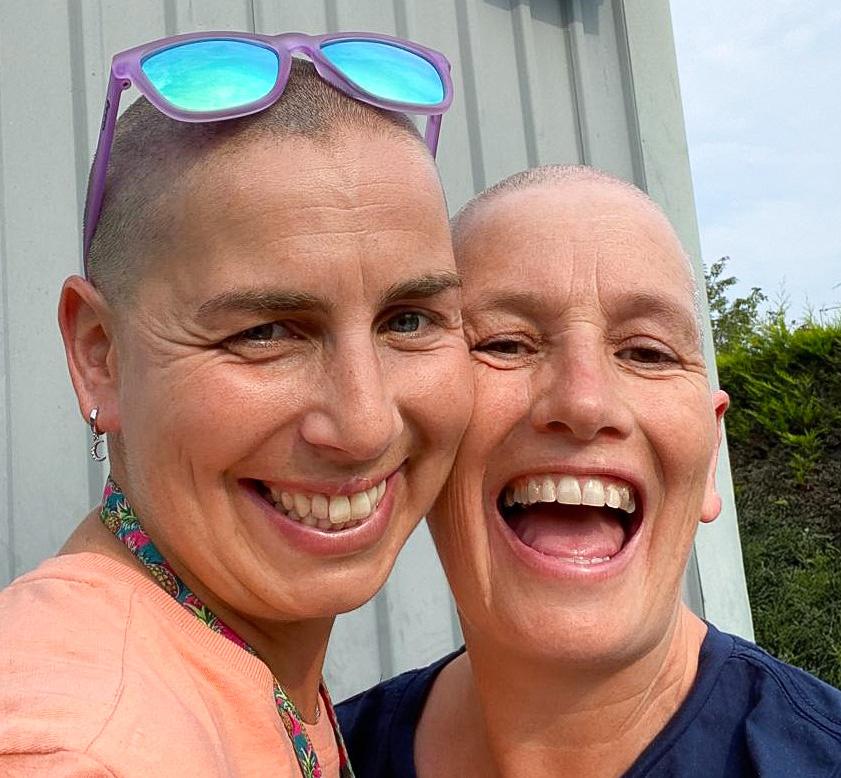
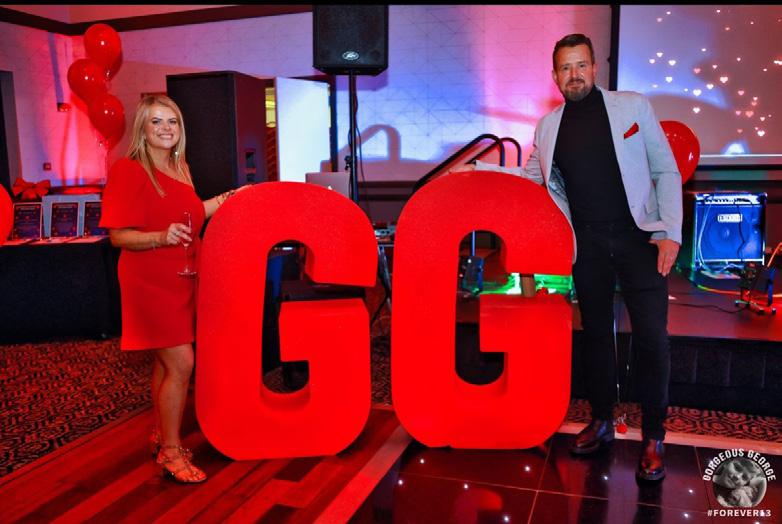
Our vital work is made possible thanks to the amazing efforts of our fundraising community. If you’ve been inspired to fundraise for Brain Tumour Research, visit our website to get started: www.braintumourresearch.org/ fundraise-your-way Or turn the page for our calendar of upcoming challenges.
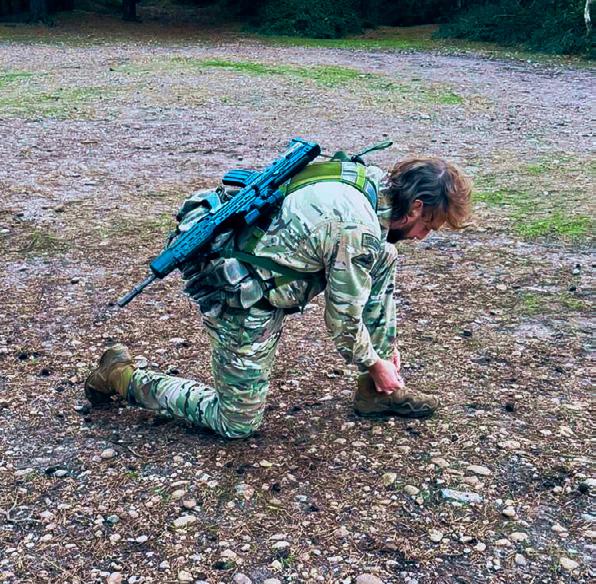
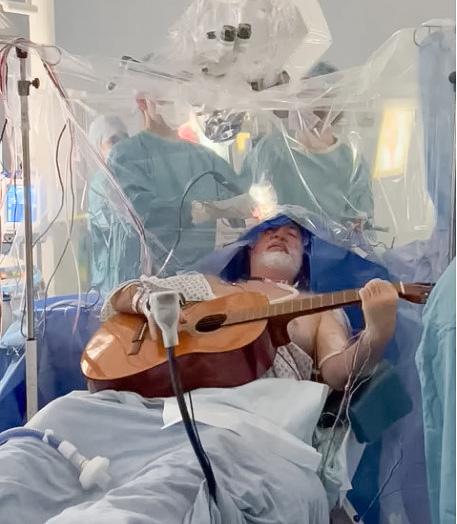
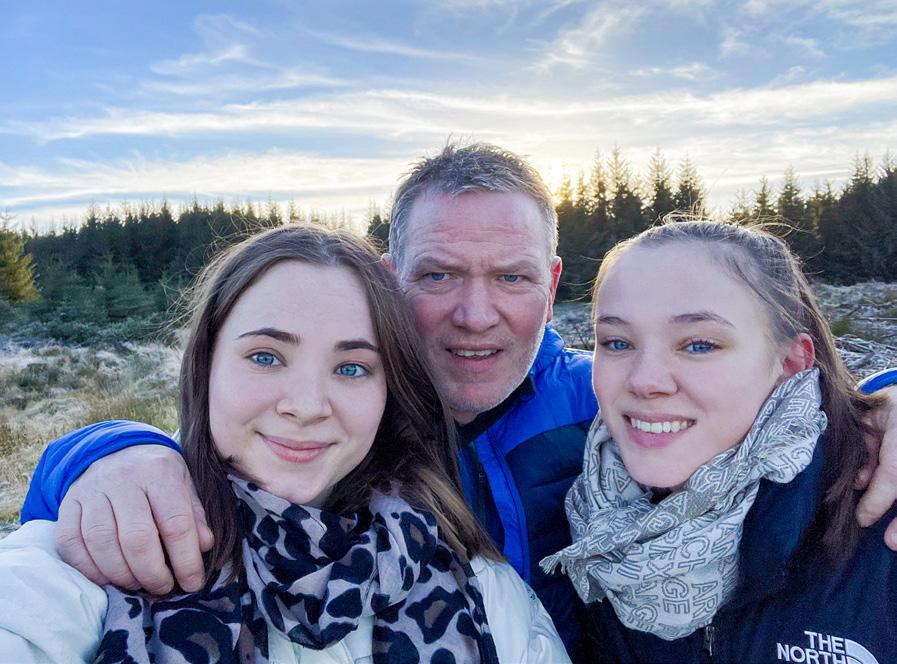
There are so many ways that you can help fund the vital research taking place at our Centres of Excellence. By taking part, you’ll also be raising awareness to influence Government funding, too. Here are just a few of the brilliant events you can get involved with this year…
Wing Walks in Ashford and Honiton
Multiple dates
Sign up for a once-in-a-lifetime aerial adventure for a breathtaking experience amongst the clouds. Wow friends and family as you take to the sky for a brilliant cause.
Malvern Hills 18 Miler 26th April
Select your favourites and join in the fun!

Challenge yourself on a hilly adventure through Malvern; if the 1300m of elevation doesn’t take your breath away, the jaw-dropping views certainly will. Sign up for the sights – and the satisfaction of effecting change.
Edinburgh Distillery Abseil 10th May
Take on a 100ft descent down the Port of Leith Distillery as you marvel at Edinburgh’s skyline and the historic Royal Yacht Britannia. Prepare for an epic day on the edge, knowing you’re helping to provide hope for countless families.
Rob Burrow Leeds Marathon 11th May
Inspired by the Leeds Rhinos legend Rob Burrow MBE, you’ll take in some of the city’s most scenic countryside and outer suburbs on this charity challenge, uniting with other runners to help bring funding to the underfunded.
Britain’s Ocean City Running Festival 11th May
This celebration of running showcases picturesque Plymouth. Run to help find a cure for all types of brain tumours in the home city of one of our Centres of Excellence.
Yorkshire Three Peaks 24th May
Starting and finishing at the impressive Ribblehead Viaduct, challenge yourself to take on the iconic three peaks of the Yorkshire Dales National Park. You’ll make memories to last a lifetime, all while raising funds for a vital cause.
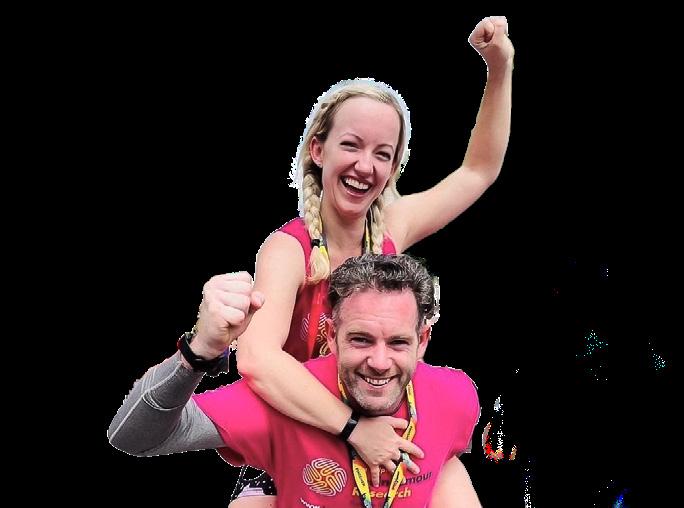
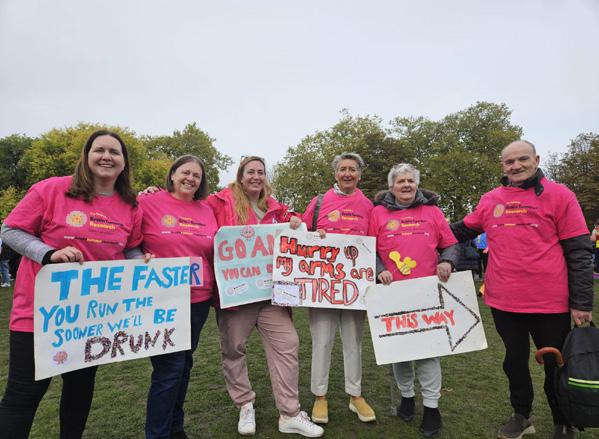

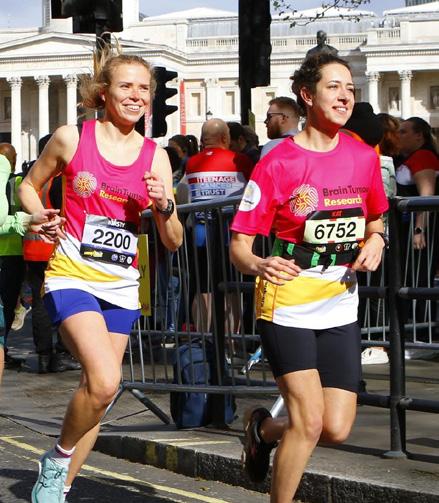


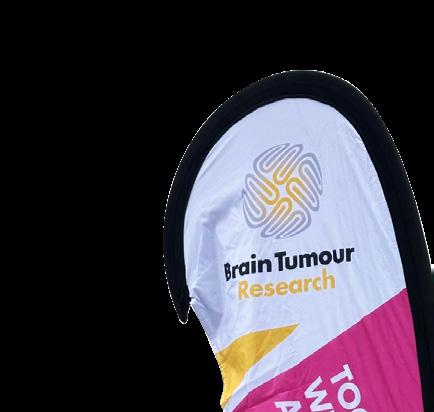

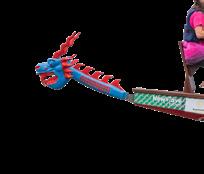
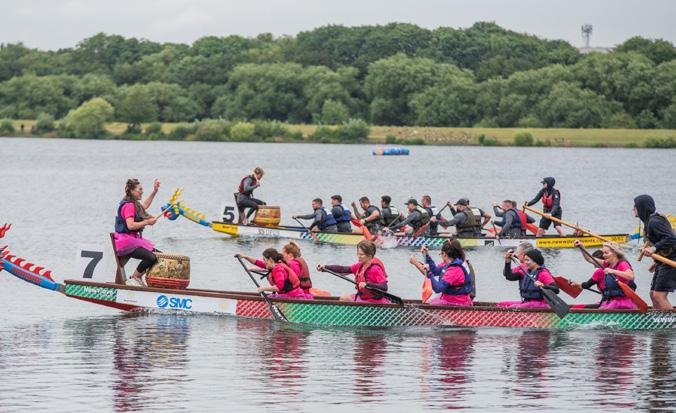
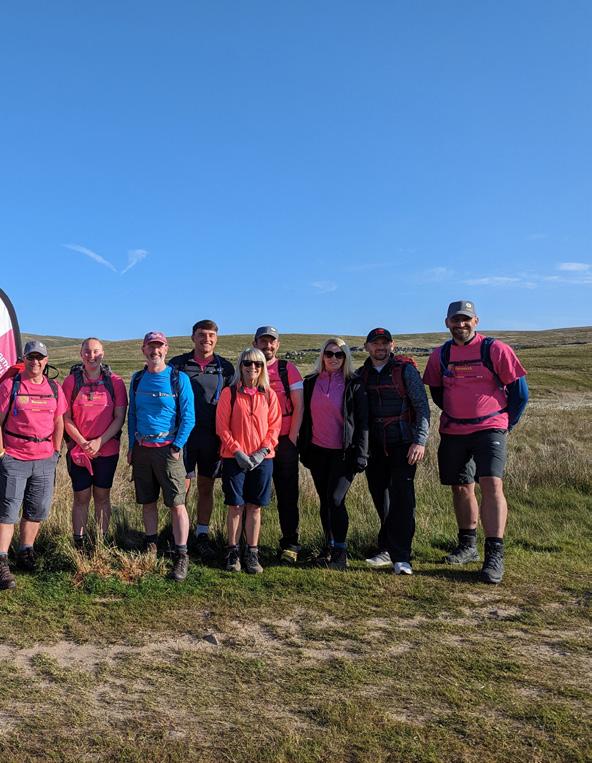

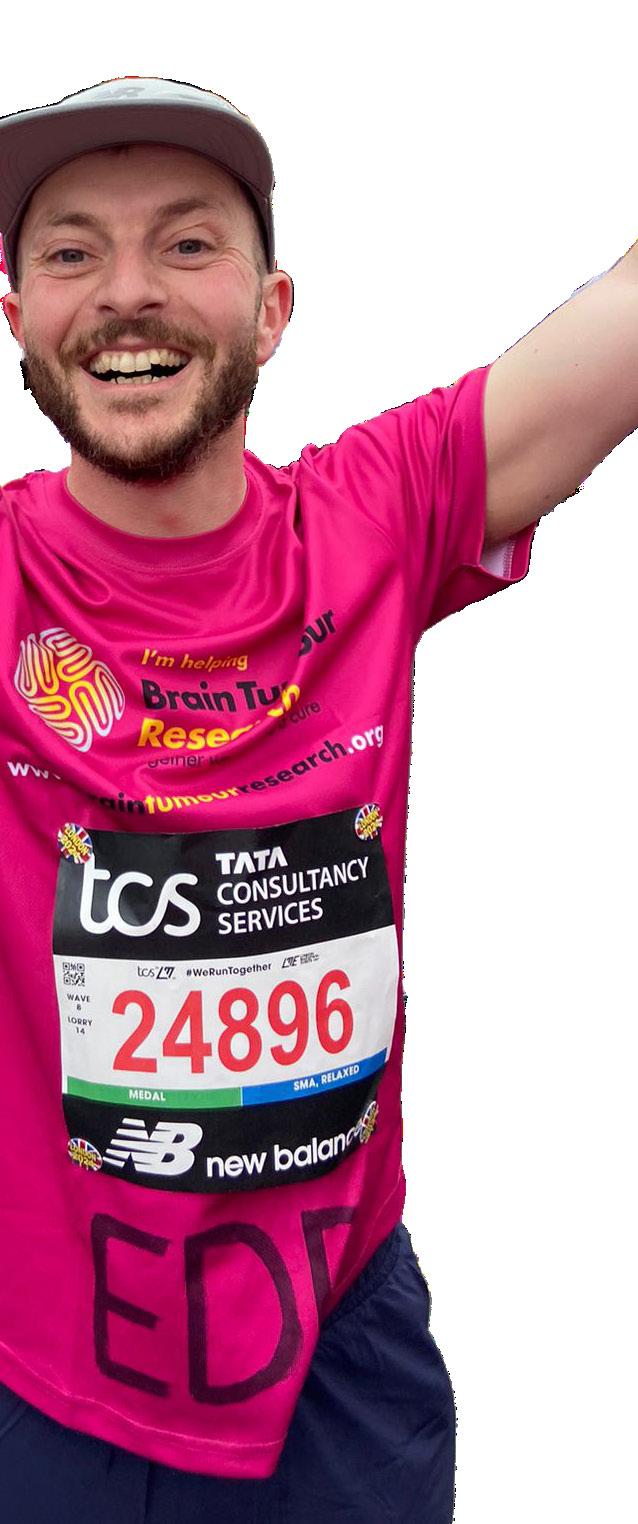
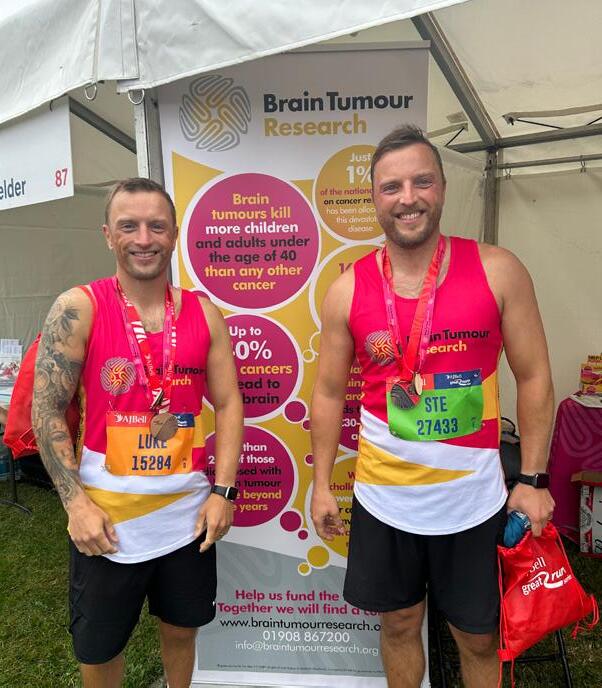
Feeling inspired?
Abseil from Millers Dale Bridge
5th July
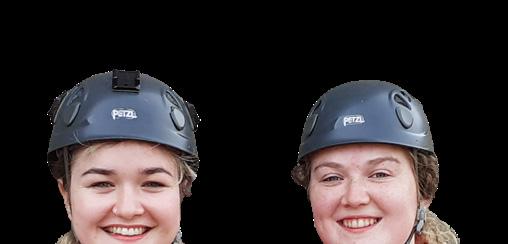

Help us take leaps forwards in research with this thrilling fundraising adventure. You’ll be in the safe hands of expert instructors as you jump 80ft from this old Midland Railway bridge over the beautiful River Wye.
MK Dragon Boat Festival in aid of Brain Tumour Research
19th July
Soak up the carnival atmosphere and join up to 48 teams on Willen Lake in Milton Keynes, for this action-packed 200m race. Don’t forget your team spirit as you join forces to fund the fight.
Royal Parks Half Marathon
12th October
Tick off some must-see sights of our capital city in one epic run, with this 13.1-mile route. In doing so, you’ll be helping us continue our race to find a cure.
AJ Bell Great South Run
19th October
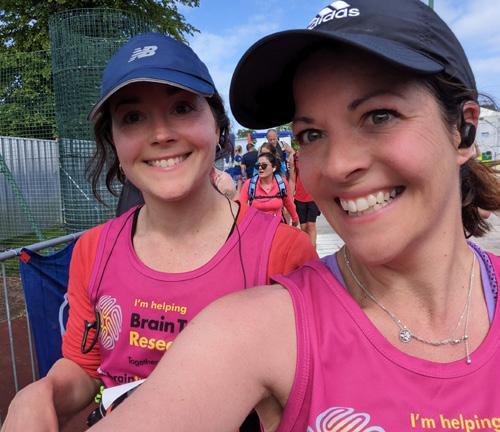

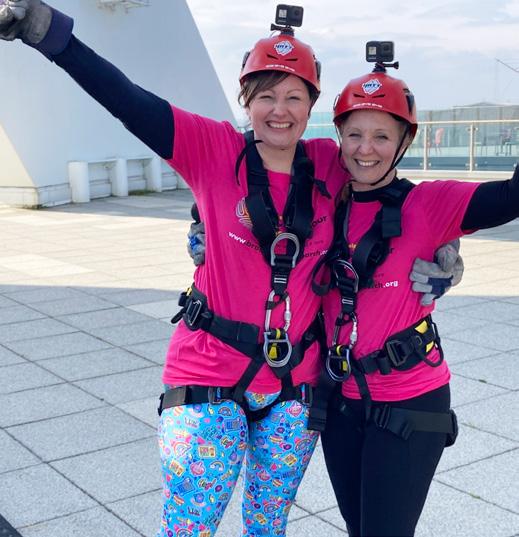
Stride to the beat of inspiring history, salty air and glorious sea views along this magical 10-mile route through Portsmouth. As you soak up the seascape, you’ll also be helping to step up our research ambitions.
You’ll find plenty more challenges to choose from at: www.braintumourresearch.org/ collections/events or simply scan the QR code
Why not sign up for one today?
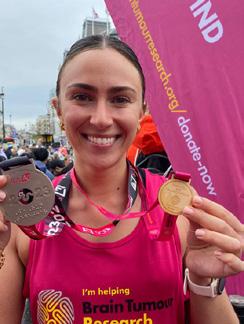
Don’t forget to keep an eye out, as new challenges are added regularly.
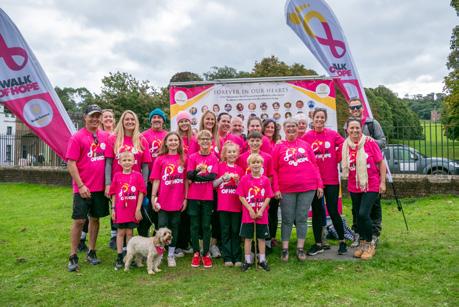
The path to better outcomes for brain tumour patients and their families remains clear, and each year on our Walk of Hope, our incredible supporters step up to take us ever closer to a cure. This year’s event didn’t disappoint, with more than 1,500 participants and £230,000 raised.
On Saturday 28th September, Walk of Hope events took place in London, Torpoint, Ellesmere, Motherwell and Chatsworth. Our fourth Luton Walk of Hope was postponed due to adverse weather, but valiant supporters gathered on Saturday 19th October, spirits undampened by a little rain. At our London Walk of Hope, Supporter Ambassador Sam Suriakumar, who is living with a glioma, gave an impassioned speech. Among the walkers was Tracy Florentine, diagnosed with a meningioma in January 2024. Tracy said: “I’ve met so many lovely people walking around. So much positivity – that’s really important when you’re going through this.”
Be among the first to hear about our WALK OF HOPE 2025 Saturday 27 th September Each step you take will help bring us closer to finding a cure for all types of brain tumour. Register now at: www.walk-of-hope.org
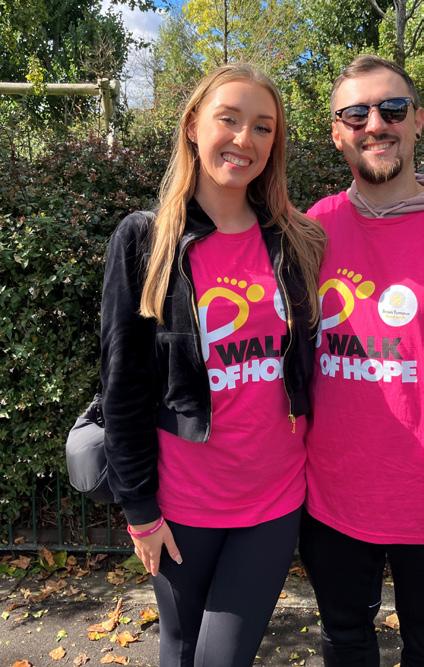
Lauren Papadopoulos Green also attended. Having undergone successful surgery for a schwannoma aged 18, Lauren was informed her tumour had regrown in 2023, aged 28. “When I was first diagnosed in 2013, I was so young, I didn’t know there was any support out there. But this time around, finding the people and the community means so much.”
As well as hope on the horizon, Torpoint walkers were offered the chance to boost their fundraising pots thanks to Plymouth Boat Trips, who donated £1 for every Cremyll Ferry user who wore a Walk of Hope t-shirt.
In Ellesmere, Fundraising Group Ella’s Army led the parade in memory of Ella McCreadie, who died in December 2022 of an undiagnosed high-grade glioma.
This was the second Walk of Hope held in Ella’s honour, which together with last year’s effort, has now raised more than £50,000.
Meanwhile, at stunning Chatsworth House, walkers were in the pink as the sun shone over the Peak District National Park. A band of furry four-legged walkers joined their owners to up the step count.
In Motherwell, members of Fundraising Group Remembering Rayhan took part in memory of four-year-old Rayhan Majid. An impromptu conga line became a symbol of supporters’ unwavering optimism in the face of heartbreak.

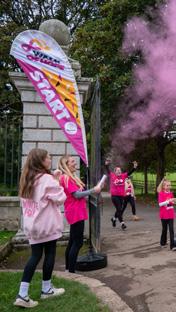

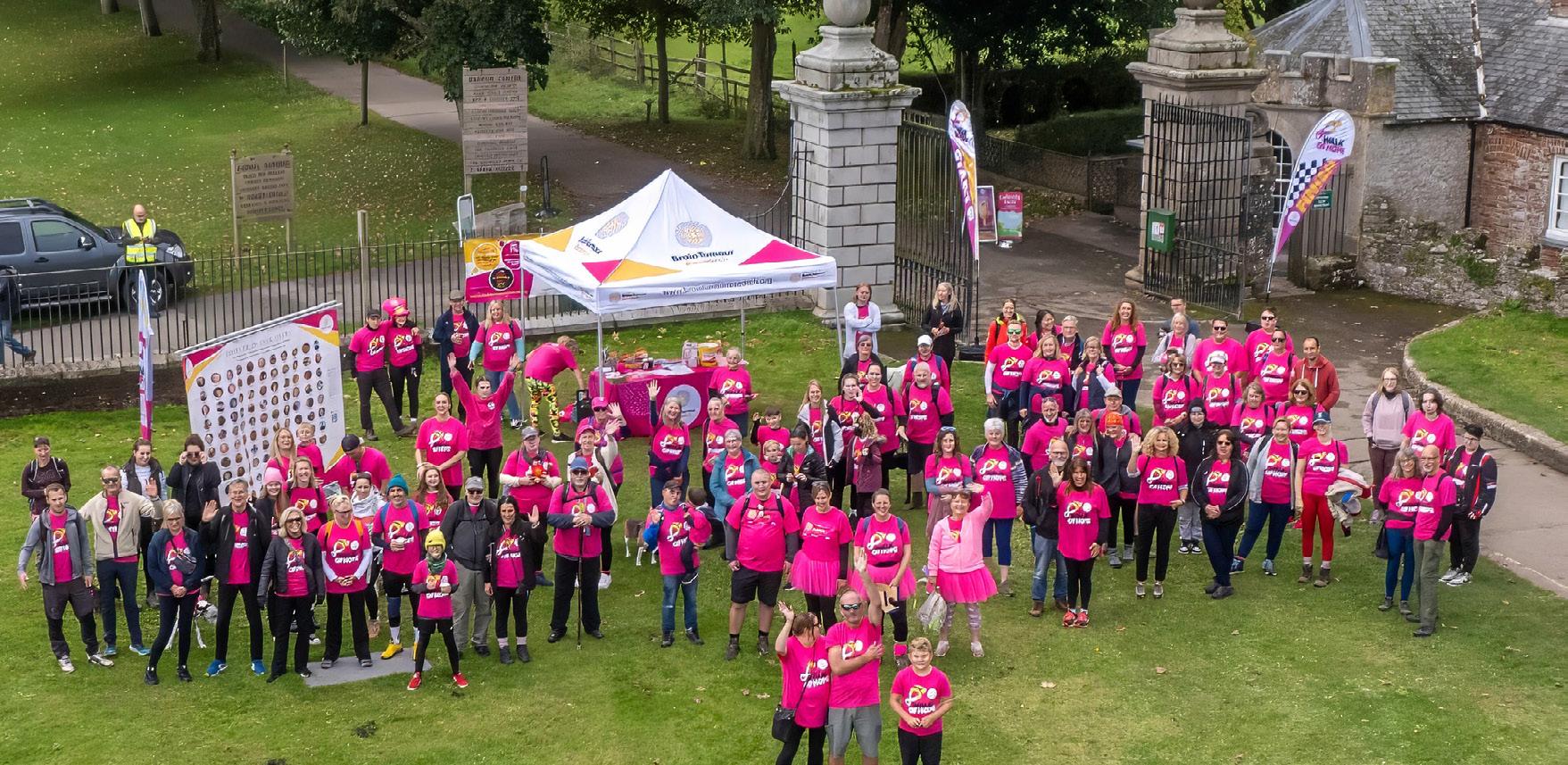
Our organised events were buoyed by fundraisers across the UK who planned their own walks. In Epping Forest, Fundraising Group Power of David led the charge in memory of 39-year-old father David Hetherington, while in Oxfordshire Albie and Beyond set out in hope so that others may never have to face a loss like theirs, of two-year-old Albie Bayliss-Watts.
Tay’s Tribe marched in memory of six-year-old Taylan Kurtul in Leicestershire, while in Blackpool, walkers included Fundraising Group Zara’s Appeal for a Cure, in honour of Zara Taylor who died aged 33. Meanwhile, Brain Tumour Research founder, Sue Farrington Smith MBE, held a Walk of Hope at her home at Padbury Hill Farm, where the Charity was launched 15 years ago. Sue said: “We had such a lovely morning – all enjoying being out in the fresh air, walking to support such a worthwhile cause.”
At our rescheduled event in Luton in October, more than 100 people took to Wardown Park to join Fundraising Group Fight4Hope in memory of Amani Liaquat, who died aged 23. Amani’s mother Yasmin said: “The Walk of Hope is a way of standing with and for those affected by the disease and keeping Amani’s memory alive.”
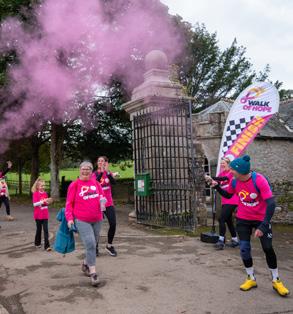

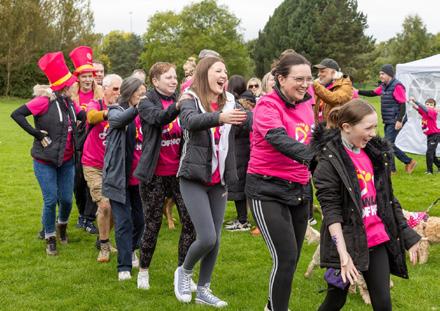
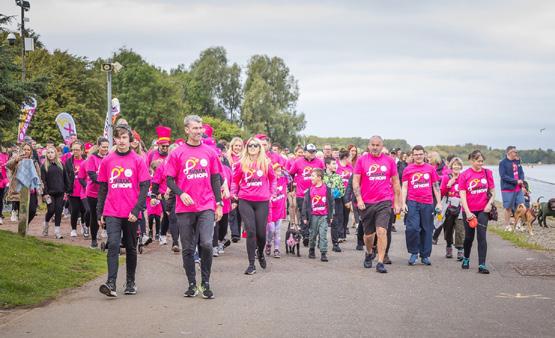
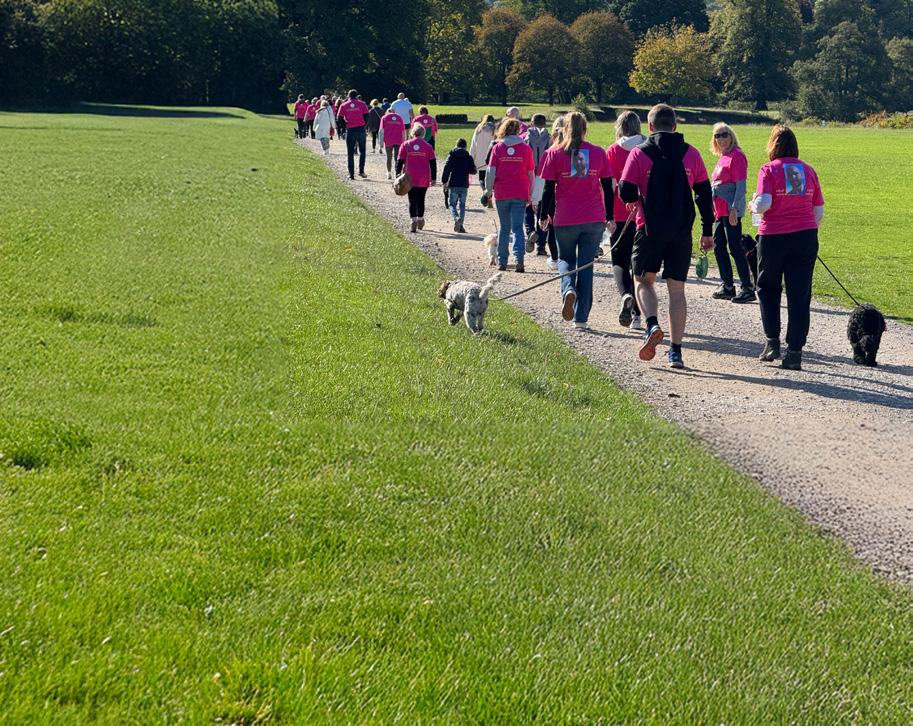
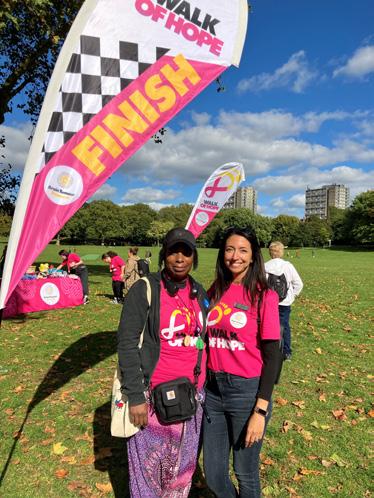
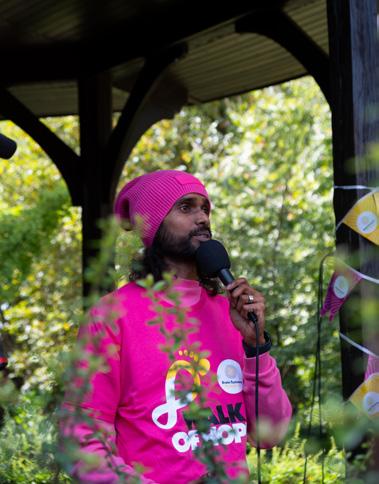
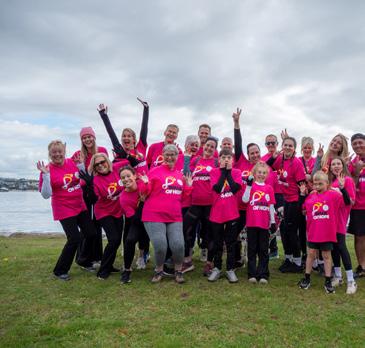
With a sea of new faces in Parliament following the General Election last year, we’ve been steadfast in canvassing newly appointed MPs for their support. While the people we’re talking to may be different, our message remains the same, as we call on the Government to declare brain tumours a priority.
Pivotal to this was the inaugural meeting of the All-Party Parliamentary Group on Brain Tumours (APPGBT) for this Parliament, held in September, for which we provide the secretariat. We welcomed Dame Siobhain McDonagh as the new Chair, leading more than 20 Parliamentarians who are all committed to making a difference for brain tumour patients.
Dame Siobhain, who has campaigned for a pathway to kinder treatments for UK brain tumour patients since losing her sister Margaret to a glioblastoma, said: “Our group is determined to deliver real impact. Our mission is too important not to.”
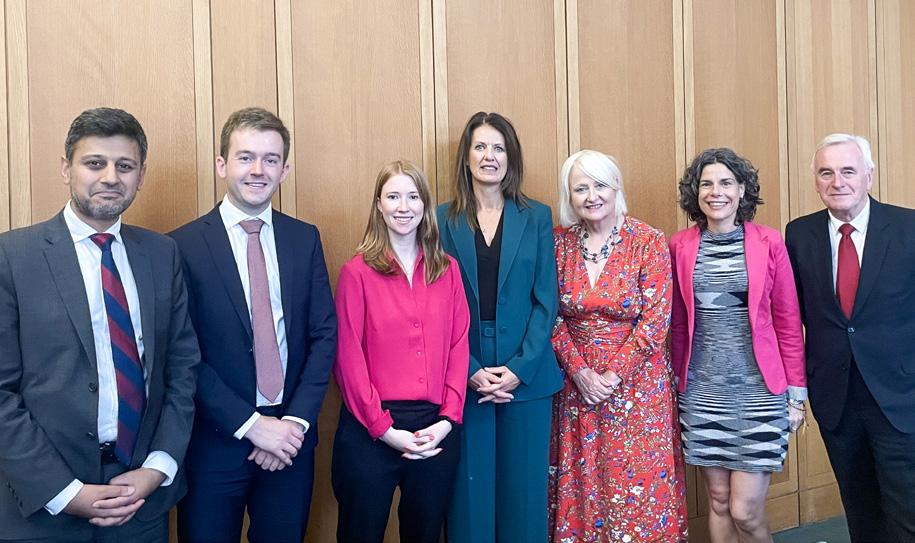
Together, our voices are louder. You can help make sure our message is heard by those in power by signing up to join our campaign: www.braintumourresearch.org/ campaign-with-us
The news of several recent funding initiatives indicates that the voice of the brain tumour community is being heard. In September, the National Institute for Health and Care Research (NIHR) launched a funding call for the formation of a new national NIHR Brain Tumour Research Consortium. That same month saw the announcement of a new industry-government partnership with up to £400 million of investment to support faster patient access to cutting-edge treatments, strengthen clinical trials and improve UK medicine manufacturing. Meanwhile, we also celebrated the news that 23 companies, of which five have a brain cancer focus, will benefit from a share of £12 million from the Innovate UK Cancer Therapeutics programme.
Hugh Adams, our Head of Stakeholder Relations, said: “As brain tumour campaigners, we feel that the noise we have been making for the past months and years must have some influence in preparing
Middle: Supporter Charlotte Lilley with mum Alison and Stuart Anderson MP
Bottom:
the ground for such a clearly favourable landscape for funding brain tumour-themed applications.”
During a meeting with Health Minister Andrew Gwynne MP in November, we raised the issue of the £40 million research investment also promised by the Government in 2018, £28 million of which has yet to be deployed. From the beginning, the Minister stressed that cancer was a disease area he took a great personal interest in and we came away believing we had been a part of a positive interaction, with hope for change.

We were joined for our campaigning webinar in December by former Health Minister Will Quince. To hear from someone with his experience on how best to campaign effectively, and what makes those with power sit up and take notice, presented an invaluable opportunity.
Of course, the influence on those in power starts from the ground up. Brain Tumour Research supporter Charlotte Lilley has become a keen campaigner since losing her dad John to a glioblastoma. Charlotte, who founded Fundraising Group John’s Crew, got in touch with her MP Stuart Anderson: “Stuart was really enthusiastic to support us and shared that he’d lost his own father, aged 37, to a brain tumour when he was a young boy. We were delighted when he agreed to attend the next meeting of the APPGBT.”
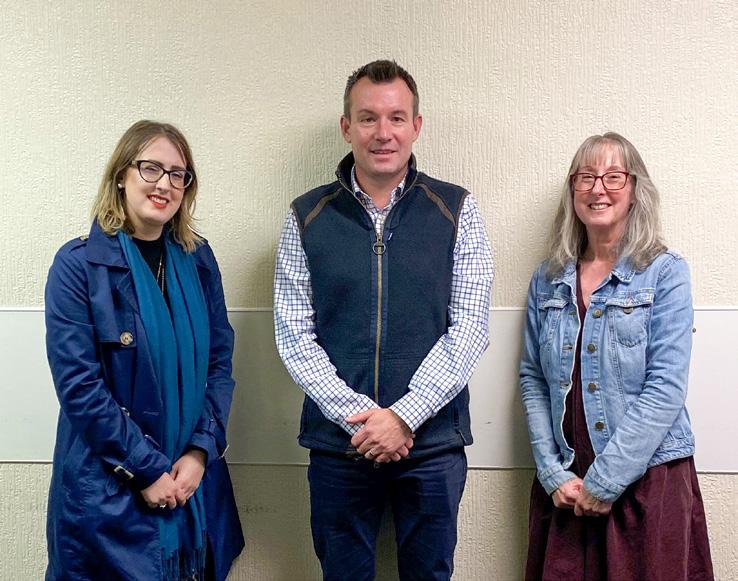
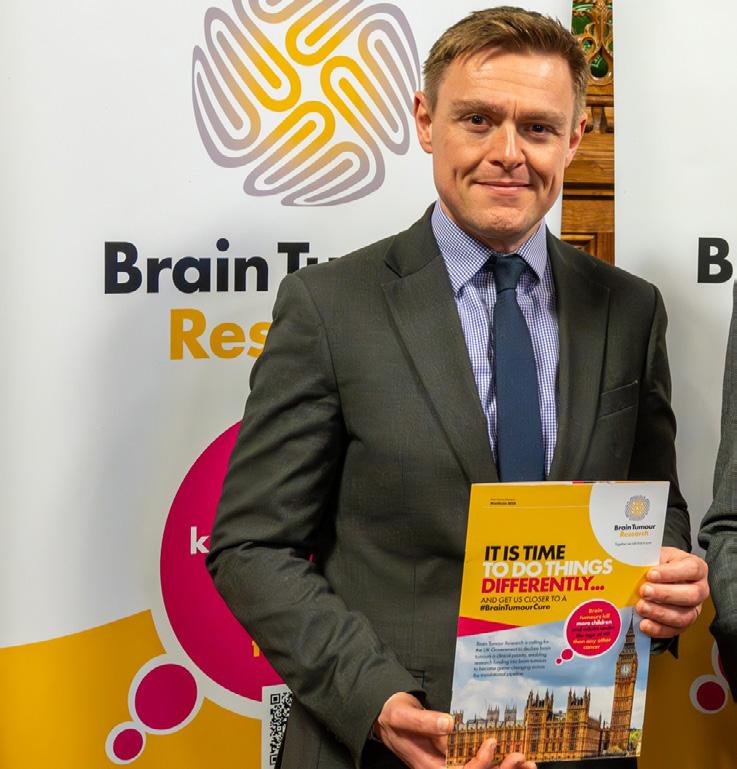
Together we will find a cure
Hugh Adams at Stormont with Health Minister
and
Our rallying cry for increased government investment grows louder. Taking our message further and wider than ever before, we’re steadfastly knocking on doors in all four corners of the UK –at Westminster, Holyrood, the Senedd and Stormont too.
In Scotland, 433 people are diagnosed with a high-grade brain tumour every year
to continue to fund long-term, life-saving research


In Wales, we play an active role in supporting the work of Cross-Party Groups. In November, we attended the Annual General Meeting of the CrossParty Group (CPG) on Medical Research alongside members of the Senedd, charity representatives and researchers. Discussions ranged from sustainable funding for research to access to cutting-edge treatments and we look forward to being part of the continuing conversation.
Our work to change the story for brain tumour patients in Scotland is gathering momentum. The inaugural meeting of the CPG on Brain Tumours was held at Holyrood last October, with Brain Tumour Research providing the secretariat. Alongside notable Members of the Scottish Parliament (MSPs), there were also charity and patient representatives, as well as experts in the field of brain tumours. On behalf of the Group’s Convener, Beatrice Wishart MSP, Deputy Convener Finlay Carson MSP said: “The formation of this CPG is about working together so that improvements can be made in research, diagnosis and treatment for various types of brain tumours that affect too many.”
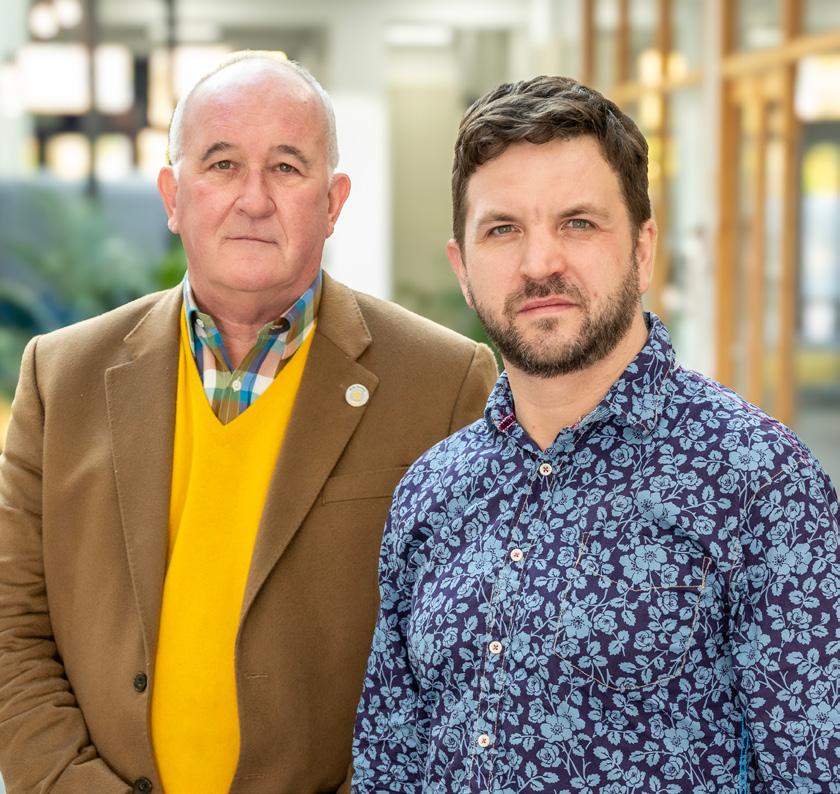
Hugh Adams, Head of Stakeholder Relations and Thomas Brayford, Policy and Public Affairs Manager
disease and explore how they might be able to support Belfast-based researchers leading the fight.

Theo Burrell
Our role at the Scottish Cancer Conference last November was one of our highlights of the year. The conference explored how innovation within our health systems has the potential to transform outcomes and the room fell silent as our Patron Theo Burrell spoke movingly about learning to live with cancer. Afterwards, our Policy and Public Affairs Manager Thomas Brayford said: “Every step forward, through innovation, offers hope to patients and their families. However, we are clear that much more still needs to be done.”
Across the sea in Northern Ireland, in September, we hosted a drop-in event – our first for the Northern Ireland Assembly – in the magnificent Long Gallery at Stormont. This was a chance to talk to Members of the Legislative Assembly (MLAs) about this devastating
The event was sponsored by Cara Hunter MLA, who we forged a strong relationship with after she shared her own brain tumour diagnosis with us. She later visited Westminster, where she met then-Chair of the All-Party Parliamentary Group on Brain Tumours (APPGBT) Derek Thomas.
Our Head of Stakeholder Relations, Hugh Adams, who also spoke at the event, said: “It is the beginning of the conversation and I am optimistic we can work with MLAs to support the exceptional work already underway in Northern Ireland.” Together we will find a cure
We look forward to continuing to take every opportunity to ensure the voice of the brain tumour community is heard across the devolved nations.
To stay up to date with all the latest campaigning and other news from Brain Tumour Research, subscribe to receive our weekly email newsletter: www.braintumourresearch.org/subscribe or scan the QR code to sign up
Our volunteers play a vital role in supporting the Charity’s day-to-day operation and our vision to find a cure for all types of brain tumours. From helping collections in the community or supporting fundraising events such as Walk of Hope, to helping out at our head office or working from home supporting our Digital Fundraising team with online campaigns, every volunteer is a much-appreciated member of the Brain Tumour Research family.
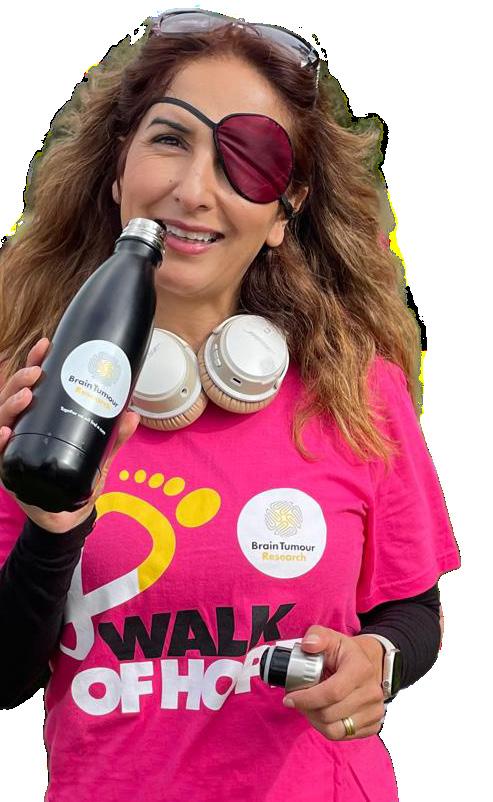
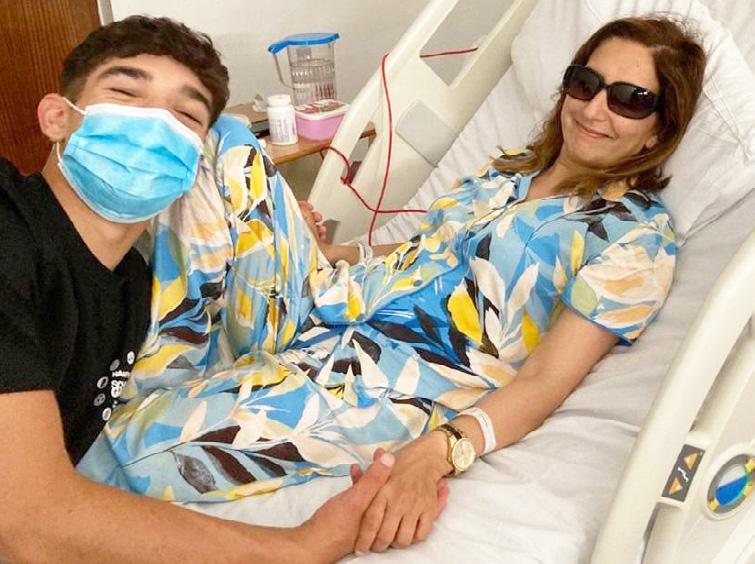
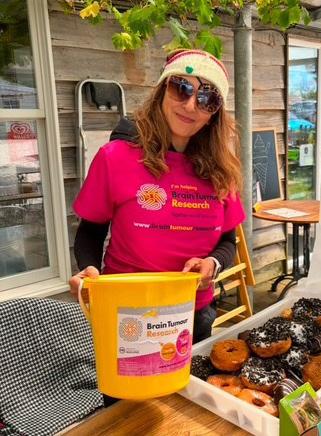
Israr Jan-Parker was inspired to become a volunteer because of the kind support shown to her when she took on a fundraising challenge after her diagnosis with a meningioma.
The university lecturer had undergone a 16-hour operation that left her with nerve damage and no sensation in her legs. She was told she may not regain mobility but was determined to prove medics wrong.
Less than two years later, Israr faced up to the Isle of Wight Ultra Challenge 106km – a two-day walk over tricky terrain – raising more than £5,400.
Israr said: “The journey pushed us to our limits. I was in so much pain. Towards the end I was experiencing over neurostimulation and for the last five miles I couldn’t really see or hear.”
It was only the support of Astrid, one of “the amazing volunteers” which got Israr over the finish line. And just one month later, she supported our team of cyclists in the 2024 Isle of Wight Randonnée as a volunteer.
“I’ve discovered that becoming a volunteer myself is so rewarding. Added to this, it felt amazing to be able to pay back the support I received during my challenge,” Israr said.
If you are interested in donating your time or skills to our cause, find out more at : www.braintumourresearch.org/ pages/volunteer-for-us

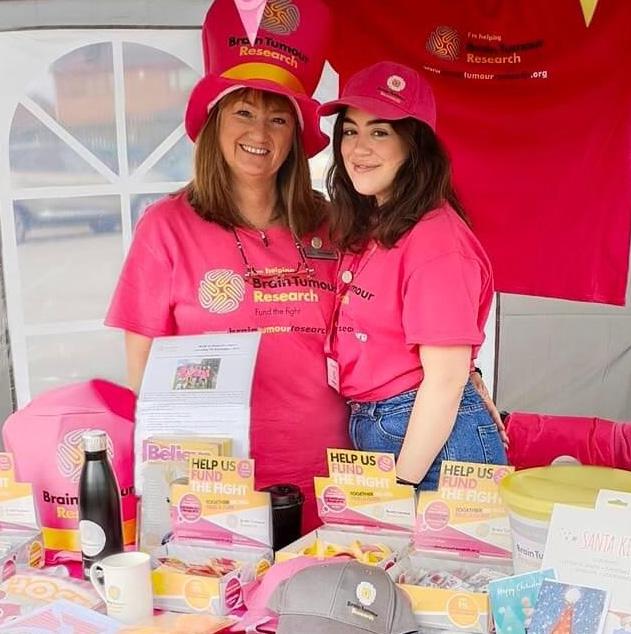
Meet Tania, part of our team of impassioned Community Fundraisers who are always on hand to support your fundraising efforts…

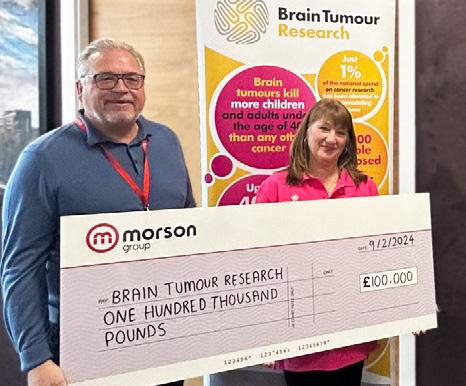
“My story is like that of so many affected by a brain tumour, watching someone full of life deteriorate before your eyes, via misdiagnosis and invasive treatments. And so it was when we lost my beloved mum to a brain tumour in January 2008.
Soon after, I spotted a copy of Believe on a shop counter and, desperate for something to make sense of what had happened to Mum, I began organising fundraising events.
I worked in a school and took every opportunity to hold bake sales to raffles to Wear A Hat Day events. So, when a job popped up for a Community Fundraiser at Brain Tumour Research in the summer of 2021, my husband Paul and daughter Talia urged me to apply.
Since starting, I’ve met so many supporters and heard so many – too many –heartbreaking stories, which gives me the drive to help others as best I can.

As Community Fundraiser in the North-West, I’ve supported participants taking on epic feats like the Yorkshire Three Peaks Challenge and Manchester Marathon; attended cheque presentations and the Chambers of Commerce for networking events; and been a presence at so many events organised by our amazing supporters and Fundraising Groups – from family fun days and charity balls to abseiling down the side of the Trafford Centre!
There’s never a day off in this job. On holiday recently, during a long flight, I got talking to the man next to me. By the time we had disembarked, he’d signed up to do the Three Peaks Challenge for us. Our supporters do as much as they can, so I feel we owe it to them to do as much back.”
Find out more about how to set up or support one of our Fundraising Groups at: www.braintumourresearch.org/fundraising-groups
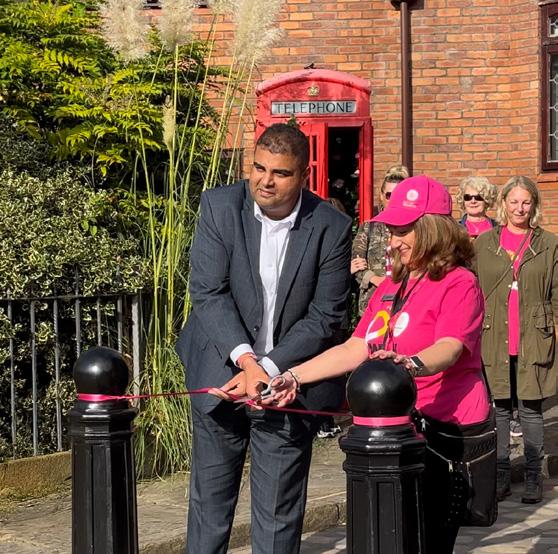
ARMY
Southdown Primary School
in North Wales, where Aaron Wharton was a pupil, joined in with the local community on 28th November 2024 to “Wear it PurpleforAaron” , his favourite colour, and make a donation on what should have been his ninth birthday.
Mum Nicola said: “Weareverygratefultotheschool fortheircontinuingincrediblesupport.It’svery poignantbecauseAaron’slastdayatschoolcame just10daysbeforewelosthim,agedseven,toan ependymomaandafterwe’dbeentoldtherewere nomoretreatmentoptionsavailable.”

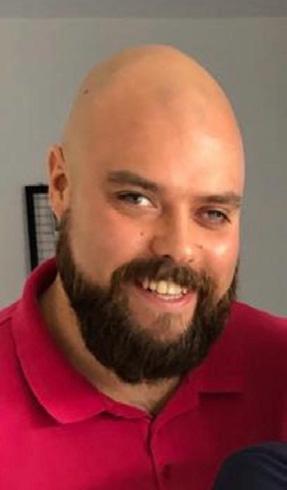
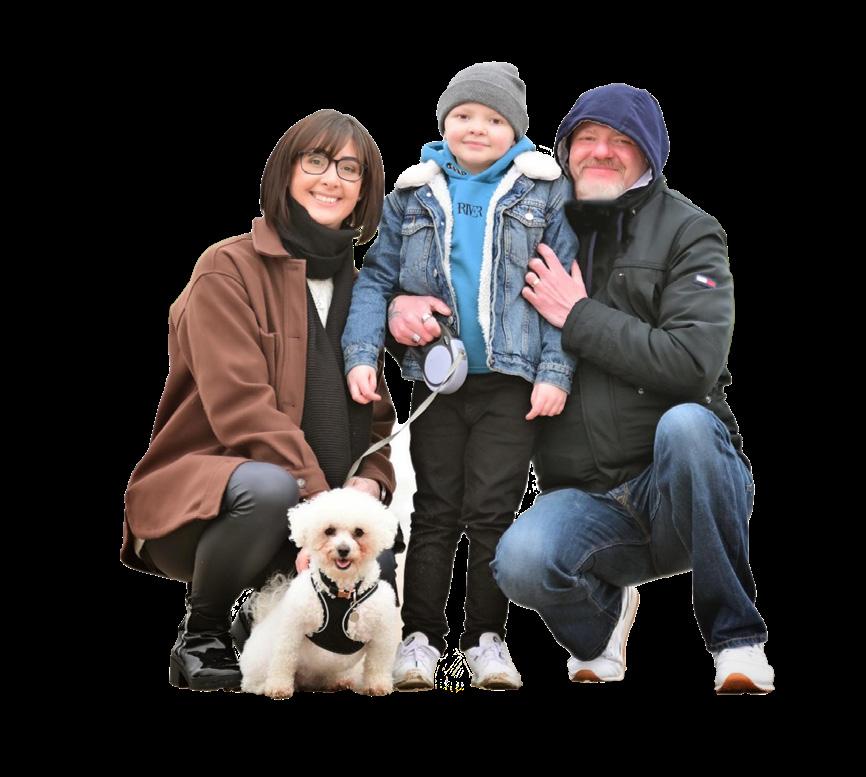
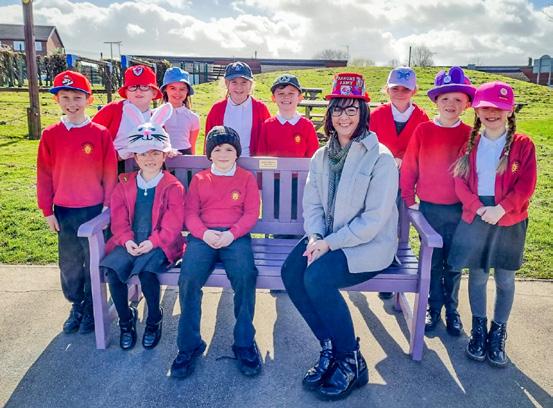

A spooktacular Halloween party attended by 50 friends and family raised more than £4,600 in memory of Dale Hudson. Dale was “anoutgoingandflamboyant” brother and son who died just two weeks after being diagnosed with a brain stem glioma.
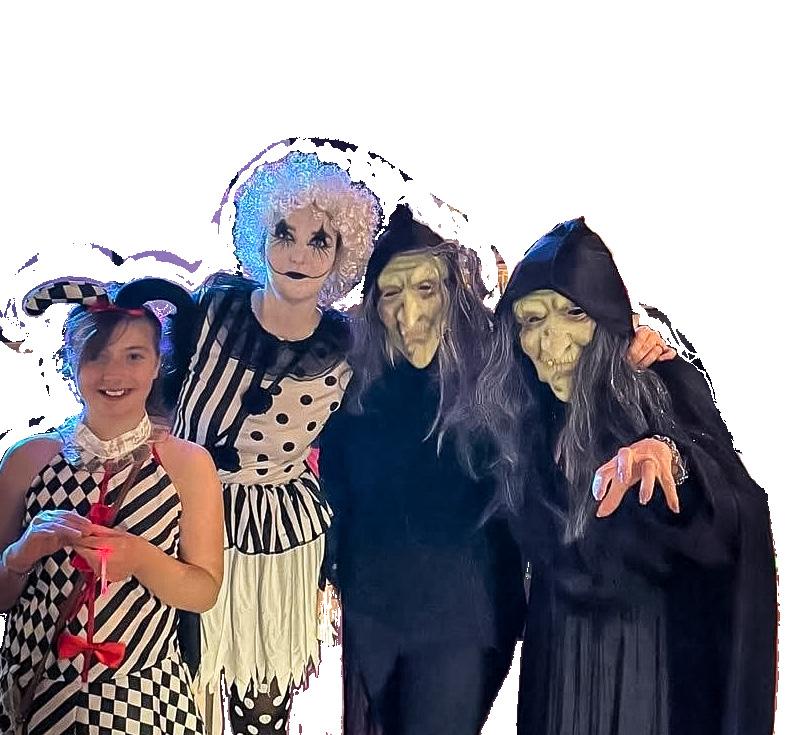
His sister Leanne said: “Daleloveddressing upandpartying,sowe’vealwaysenjoyed agoodtimeatHalloween.Itwasvery emotionalholdingaHalloween partywithouthim,butwehad hisstuffedSasquatch/Bigfoot costumeondisplayand shared lots of memories.”
For more information and to join our family of Fundraising Groups, visit: www.braintumourresearch.org/pages/about-our-fundraising-groups
Neil enjoying a family holiday
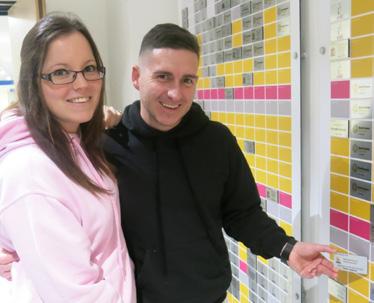

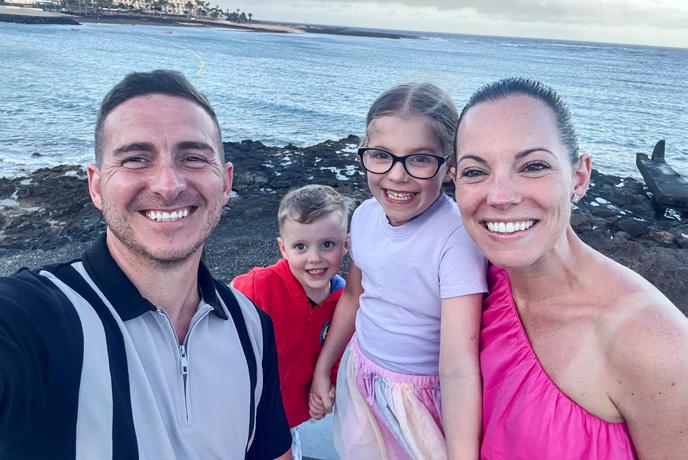
Neil and wife Alex placing tiles on the Wall of Hope
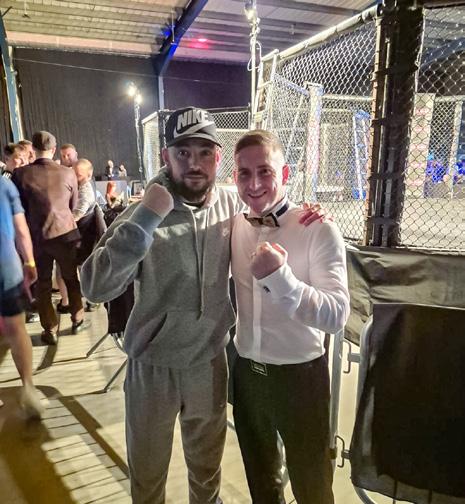
James and Neil at the boxing challenge
Father-of-two Neil Taylor, who set up the Fundraising Group, said last year: “Doctors told mesevenyearsagothatmy brain cancer was incurable andIhadfiveto10yearsatbest.Everybirthday isacauseforcelebration,butthisyear,turning 40wasparticularlyspecial,knowingthatbrain tumours kill more children and adults under 40thananyothercancer.”
Neil is grateful to his friend James Gaskell for taking on a white collar MMA boxing challenge which has helped to boost Neil’s Appeal’s fundraising total by £820 to more than £42,000.
Simon Penwright and his family started fundraising before he passed away from a multifocal glioblastoma in November 2023, aged 52. They set up an official Fundraising Group last year which has already raised £50,000. In the last few months, Simon’s Drive held a second football tournament and a number of quiz evenings.
Emily, Simon’s wife, said: “Simon’sDriveisgiving usthecouragetocarryonandfocusonbringing hopetootherfamiliesaffected.”

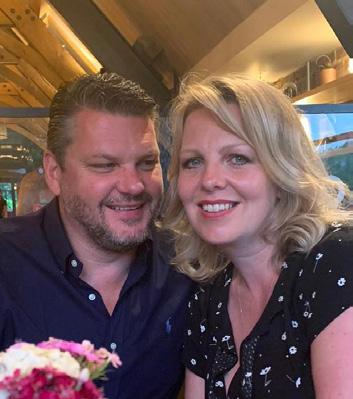
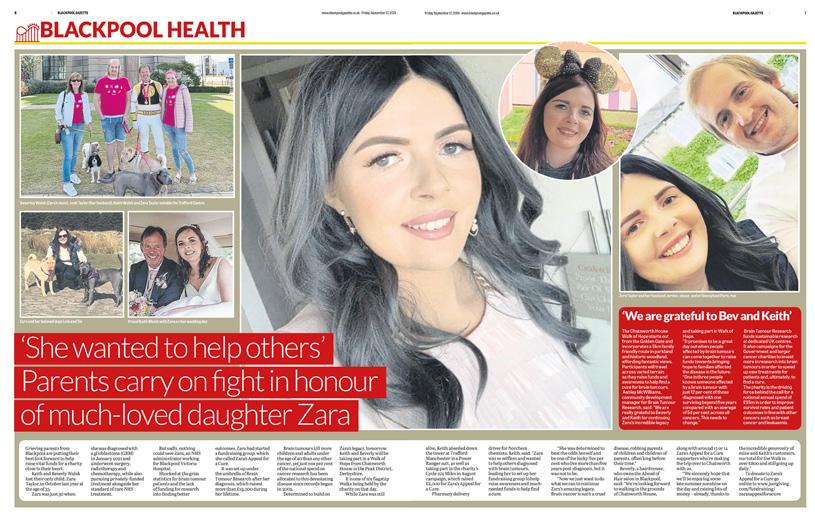
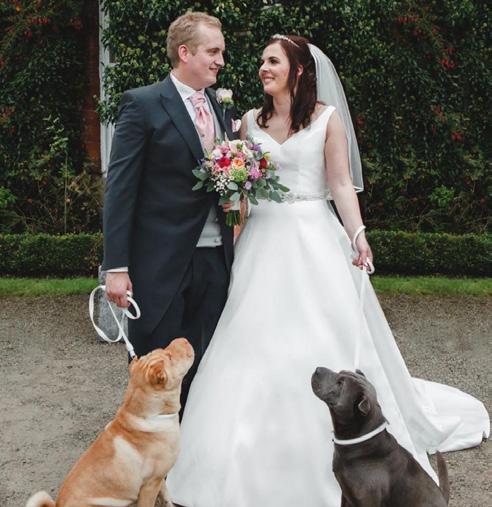
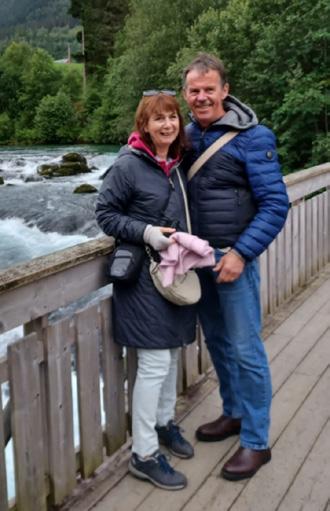
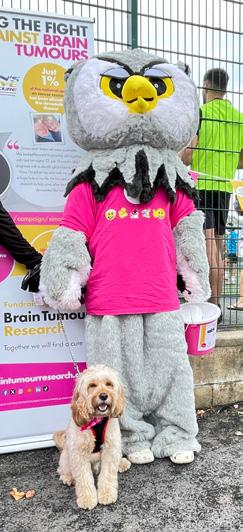
ZARA’S APPEAL FOR A CURE
Friends and family of Zara Taylor marked the first anniversary of her death on 21st October 2024, less than a month after taking part in our Walk of Hope at Chatsworth House and seven months after Blackpool Tower was lit up in her memory on Wear A Hat Day.
Zara was 30 and just married a year when she was diagnosed with a glioblastoma. It led her to set up the Fundraising Group which has raised close to £27,000. Her loved ones are continuing Zara’s extraordinary legacy in her memory.
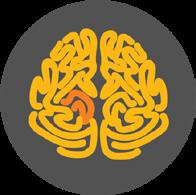

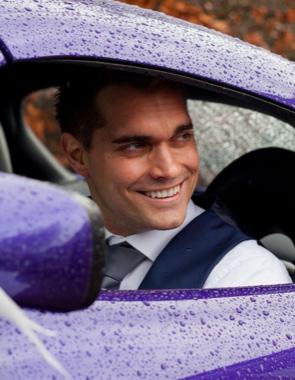
The annual Ladies who Lunch event, which remembers Jay Lynchehaun who died in 2022 from a glioblastoma, raised “a whopping £14,325” with 365 ladies paying £40 for tickets which included a welcome drink, a three-course meal, wine, coffee and mints, as well as entertainment.
Charity leader, Sharon Hacking, said: “The ladies all seem to love the lunch event and come back every year – we’ve been holding it for nine years. They’re very generous too. Last orders are at 6.30pm and no one wants to go home! Jay’s motto for the day is important to us: ‘Arrive as strangers, leave as friends’.”
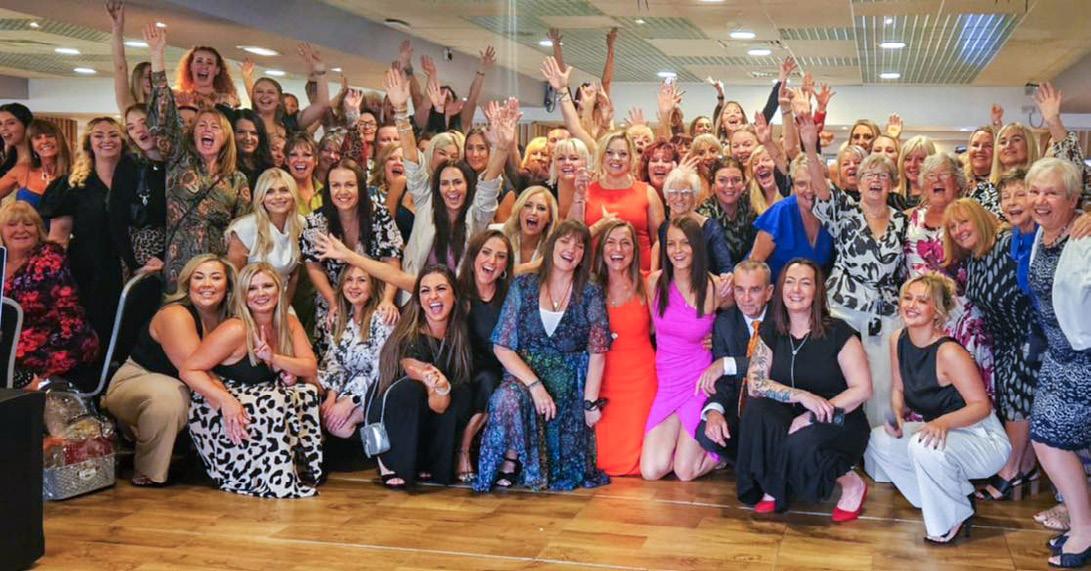
Our Member Charities help bring us closer to a cure and offer vital support for patients and their families. For more information about joining us and benefitting from a national presence, contact: nadia.dias@braintumourresearch.org

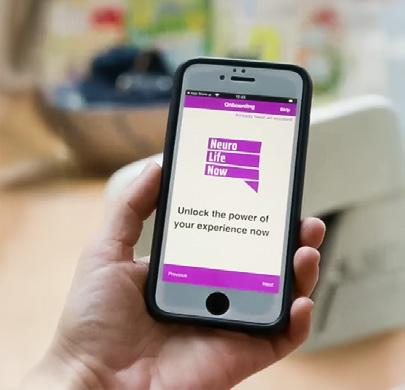
Share your insights in the latest survey
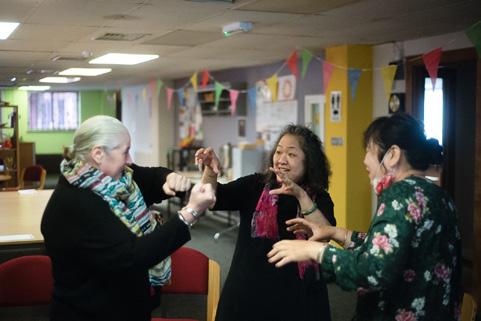

The Charity is inviting members of the neurological community to take part in the next series of NeuroLifeNow Surveys which give an opportunity to inform research. The first survey is Travel for Healthcare.
Communications & Marketing Manager
Constance Michel said: “We want to better understand your experiences of travelling for healthcare, so that we can make an informed case to policymakers for improvement. Help us transform the lives of millions affected by neurological conditions.”
Find out more at https://neurolifenow.org
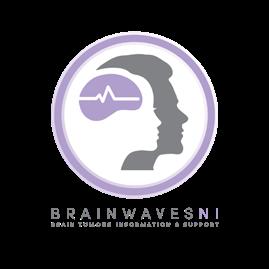
In a busy 30th anniversary year, Brainwaves NI continued its vital role supporting families affected by brain tumours in Northern Ireland. An incredible 100 supporters enjoyed a weekend away together, while the same number joined the annual pantomime outing. And the AGM had its biggest attendance ever.
On the campaigning front, Brainwaves NI hosted a successful awareness session with politicians at Stormont, along with Brain Tumour Research, to reinforce how severely research into brain tumours is underfunded.
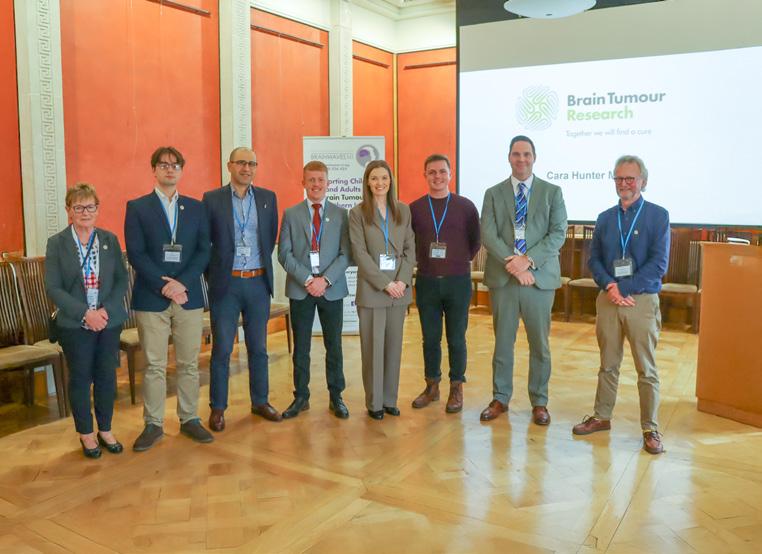
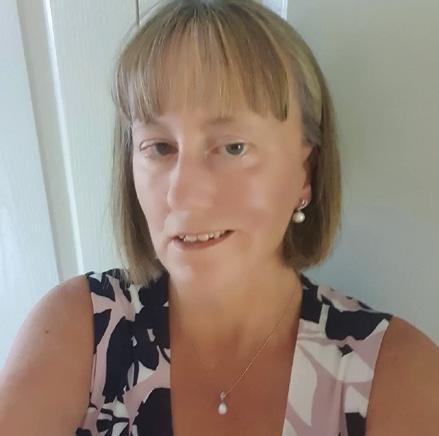
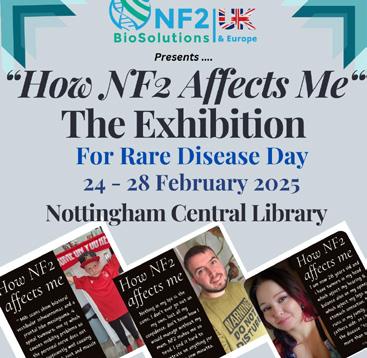
Rare Cancer Day exhibition

To celebrate Rare Disease Day 2025 on 28th February, the Charity brought its popular social media campaign ‘How NF2 Affects Me’ to life. Patients with NF2-SWN (affected by brain tumours, spinal tumours, optical tumours, deafness, blindness, epilepsy, vocal cord paralysis, mobility problems, chronic pain, cataracts, facial palsy and much more) shared their journeys, shedding light on the challenges they face and inspiring hope for better understanding and treatments.
Patient and Charity COO, Joanne Ward said: “It was great to spread the word throughout February on behalf of all those affected with rare diseases.”
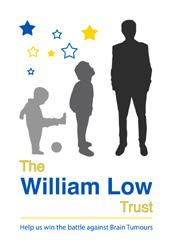
A Christmas Ball provided over 100 guests with an evening “filled with festivity, warmth and generosity, all in memory of William, who lost his life to medulloblastoma brain tumours just before his 18th birthday”, said his mother Helen Forbes-Low.
The event featured a three-course dinner, as well as a lively auction with highlights including fine whisky, exclusive event experiences and signed football memorabilia, raising £4,945. Helen said: “This incredible sum will further research into medulloblastoma, as well as provide treat parcels for families affected by brain tumours.”
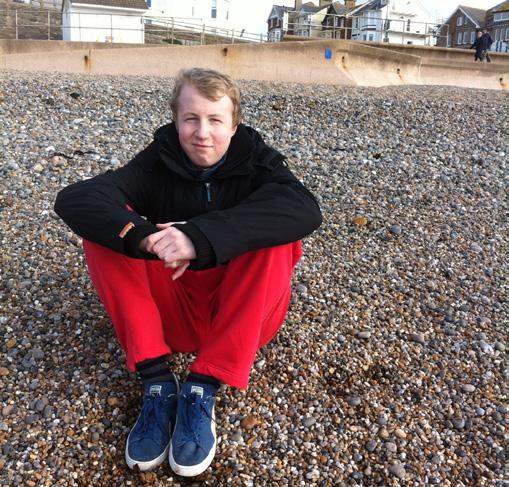
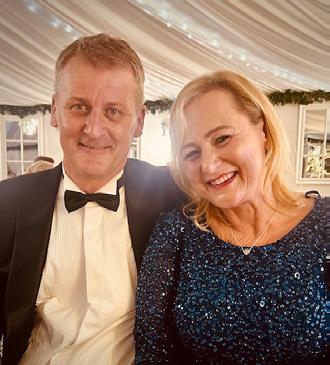
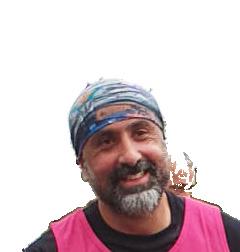

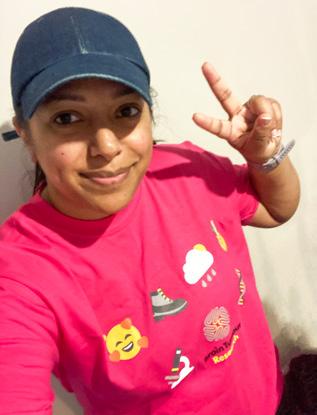
A regular monthly donation, whether it’s £5 or £50, ensures that we are able to continue to grant funding for sustainable, long-term research. Without consistent funding, we can’t achieve the ground-breaking discoveries so desperately needed to improve treatments and bring hope to brain tumour patients for better outcomes. If you are already a regular donor, would you consider increasing your gift by an extra £2 per month? That’s less than the price of a cup of coffee!
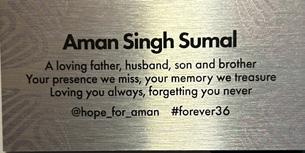
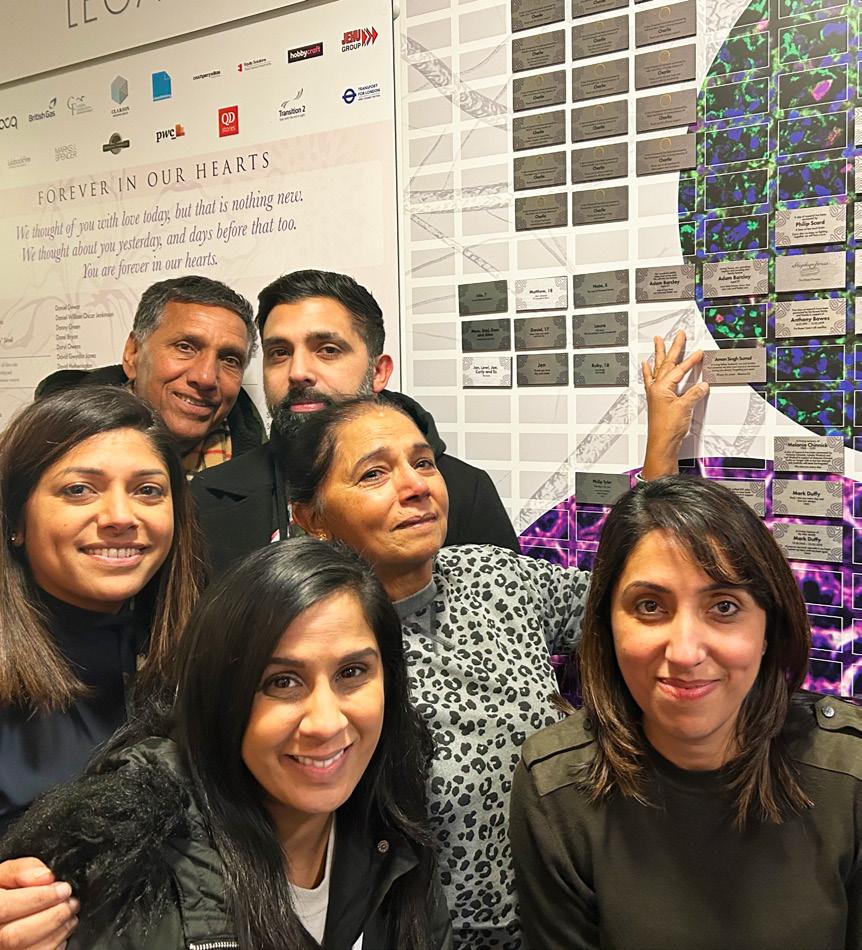
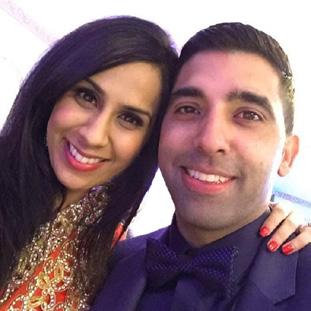
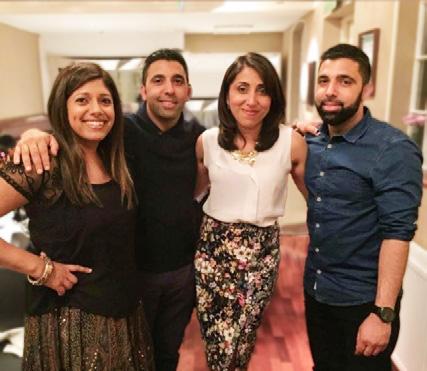
We are grateful to all our supporters who sign up to be regular givers, including Sonia Sandhu, who lost her brother Aman Sumal, aged 36, to a glioblastoma. Despite treatment, including private immunotherapy, Aman died leaving his two-year-old son, Rajan, and wife Jasdip, who subsequently gave birth to their daughter Amandeep.
Family members have taken on fundraising challenges, including Aman’s brother-in-law Suki Sandhu, who raised more than £7,000 running the London Marathon, and Sonia who raised more than £3,200 by taking on Jog 26.2 Miles in May.
Sonia said: “I signed up to donate a regular amount which I knew I wouldn’t miss, knowing that it’s helping to bring hope to people diagnosed with brain tumours in the future. Even a small amount can have a big impact over time.”
1. Family encourage Suki during London Marathon
2. Sonia took part in Jog 26.2 Miles in May
3. Aman’s family visit our Centre at Imperial College London
4. Jasdip and Aman Sumal
5. Sonia and Aman with siblings Jags and Anoop
To set up a regular donation and make an amazing difference to life-saving research, visit our website: www.braintumourresearch.org/donate-now scan the QR code or call us on: 01908 867200
We are indebted to businesses, schools and the likes of Mayors and Golf Club Captains for choosing us as their Charity of the Year. These valued collaborations inspire and motivate teamwork within organisations, while playing a crucial role in helping to fund the fight in our Centres of Excellence to find a cure.
One such Charity of the Year relationship has been the Milton Keynes-based Autotech Group, which raised an incredible sum of almost £40,000. Autotech Group chose to support Brain Tumour Research after its founder, Gavin White, was diagnosed with a glioblastoma in August 2023.
Just two weeks after surgery, Gavin took part in Walk of Hope for Brain Tumour Research, saying: “I can’t change the past and what’s happened to me, but I can help change the future.”
The company’s fundraising endeavours have also included a quiz night and a 16-strong team conquering the gruelling National Three Peaks Challenge (the highest mountains in Scotland, England and Wales) in one weekend. The Autotrekers, as they called themselves, surpassed their target of £10,000, raising more than £16,000 with Gavin himself completing the challenge alongside the team, “embodying the spirit of resilience and determination.”
To learn how you can enhance CSR objectives and reputation, foster teamwork and collaboration, while raising funds to bring hope to those diagnosed with the biggest cancer killer of the under 40s, email: aimee.clarke@braintumourresearch.org
‘Together’ is one of our company values and the team certainly embraced this over the weekend.” to

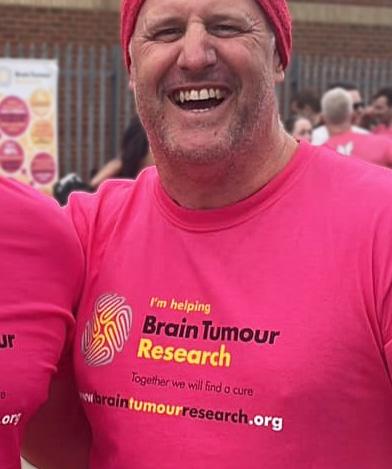
Chief Technology Officer Laurence Abbott said: “The challenge was a whole-company effort, with everyone involved in some way.
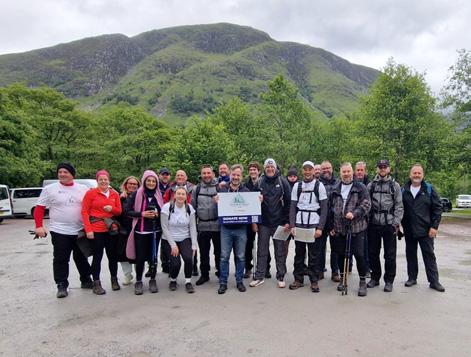

From all of us at Brain Tumour Research, our love and thoughts are with all those who inspire us and with everyone who continues to support us in memory of their loved ones and colleagues, year after year.
James Richard Acaster
Rachel Aldous
Siobhan Alford
Janinne Arrundale
Anne Madeline Aubrey
Christopher Avery
Calum Baker
Patricia Banks
Leslie Banner
Karen Barlow
Josef Bergovan
Lisa Blanchard
Michael Blundred
Tracey Caroline Blunn
Michael Boardman
Neville Bowles
Craig Bradshaw
Ethel Briggs
Danny Broderick
Sheila Brown
Margaret Burns
David Burton
Patricia Butt
David Catchpole
Patricia Chilvers
Yvonne Collinson
Alan Cook
Paul Cooper
James ‘Jim’ Cope
Joan Cox
Sydney Crate
Philip Henry Croft
Joshua Cullen
Ian Davis
Margaret Day
Ann Dennison
Paul Dimmick
Graham Drewett
Dorian Peter Dudley
Chris Duffy
Jason Dullaghann
Colin Edwards
Susan Evans
Brian Eyre
Richard Fairbairn
Freyja Fitzpatrick-Hilditch
Rosetta Franklin
Leslie Fuller
Yvonne George
Leigh Simone Goudie
Penny Graham
Paula Gray
Steven Green
John Greenway
Mark Grimsey
Neil Guidera
Richard Hammerton
Graham Hancock
Margaret Hancock
Brian Harland
David Hathaway
Gary Hayes
Maureen Hicks
Jim Hodgson
David Howson
Richard Hunt
Alice Johnson
Matthew Jones
Melanie Jones
Joe Kearney
David Paul Kelly
Andy Kilner

We thought of you with love today, but that is nothing new. We thought about you yesterday, and days before that too. You are forever in our hearts.
Marjorie Langdon
Sharon Lawrence
Steven Longstaff
Andy MacFarlane
Wilhelmina Carol Mack
Frank Maidment
John James Martin
Paddy McDermott
Andrew McFarlane
Moyra McGill
Patrick McIntyre
Alistair McVitie
Sue Messingham
Christopher Mort
Stuart Morton
Beverly Charmain
Newey
Allan Nutton
Matt Olson
Thomas Ormiston
Geoffrey Palmer
Sylvia Park
Jill Parker
Geoffrey Pavely
Kevin Pestell
Alison Pinches
Malcolm Plews
Alan Price
John Quick
Emma Quill
Paul Redgrave
Evelyn Richardson
Daniel Rix
Phillis Rutledge
Janet Sadler
Jillian Sales
Ronnie Scott
David Scullion
Shanti Shah
Nia Shibambo
Raghbir Singh
Alan Smith
Jean Smith
Julian Smith
Rita Smith
Jayne Sorrell
Kenneth Sparks
Rory St John
Tony Stephenson
William Stern
Michael Sutherland
Marcus Tarantino
Jane Taunton
Christine Townson
Jasmine Troke
Wayne Vaughan
Samantha Vine
Caroline Walkin
Kevin Ward
Kevin Watt
Peter Wheeler
Keith Whittaker
Terry Wickens
Rosalind Wilson
David Wiseman
Jan Yorke
Loved ones here include those lost to a brain tumour for whom we received funeral donations between July and December 2024.


